Welcome to AKATECH TRAVEL - TRAVEL WARNINGS & ALERTS
TRAVEL WARNINGS
We issue a Travel Warning when we want you to consider very carefully whether you should go to a country at all. Examples of reasons for issuing a Travel Warning might include unstable government, civil war, ongoing intense crime or violence, or frequent terrorist attacks. We want you to know the risks of traveling to these places and to strongly consider not going to them at all. Travel Warnings remain in place until the situation changes; some have been in effect for years.
TRAVEL ALERTS
We issue a Travel Alert for short-term events we think you should know about when planning travel to a country. Examples of reasons for issuing a Travel Alert might include an election season that is bound to have many strikes, demonstrations, or disturbances; a health alert like an outbreak of H1N1; or evidence of an elevated risk of terrorist attacks. When these short-term events are over, we cancel the Travel Alert.
Travel Warnings & Alerts
-
[JULY 18, 2016] - HAITI TRAVEL WARNING
AKATECH TRAVEL has put up this Travel Warning to inform the public traveling to or living in Haiti about the lack of adequate emergency medical facilities, and the security environment in Haiti. Haiti’s emergency response network, along with the continued presence of serious crime and civil unrest, should be carefully considered when planning travel. This replaces the Travel Warning dated August 5, 2015 and provides updated information regarding the changing nature of crimes in Haiti.
Emergency Response: Medical care infrastructure, including road ambulance and other emergency services, is very limited in Haiti. Some people injured in accidents and others with serious health concerns have been unable to find necessary medical care in Haiti and have had to arrange and pay for medical evacuation to other countries. We strongly encourage travelers to Haiti to obtain medical evacuation insurance prior to arrival in country and to use evacuation organizations that have solid evacuation and medical support options in place. Moreover, those traveling in rural areas of Haiti should verify their evacuation organization provides service to where they are traveling.
Crime: Reports of kidnappings of U.S. citizens have fallen off sharply, with few incidents reported to the Embassy in 2016, but kidnapping for ransom can still affect anyone in Haiti, most particularly those maintaining long-term residency in the country. Armed robbery is a very real possibility, especially in the Port-au-Prince area and in particular soon after leaving the airport. Be circumspect in sharing specific travel plans; have your host or organization meet you at the airport upon arrival; and/or have pre-arranged airport transfers and hotels. Exercise caution when visiting banks in Port-au-Prince. Robbery crews have been known to survey banks and rob customers as they exit. Fewer incidents of crime are reported outside of Port-Au-Prince, but Haitian authorities' ability to respond to emergencies is limited and in some areas nonexistent. Embassy employees are required to adhere to all security and safety measures of the Embassy’s Regional Security Office when traveling outside of Port-au-Prince, as well as restrictions on travel in certain areas or times. This may constrain the Embassy’s ability to provide emergency services to foreign citizens outside of Port-au-Prince or regular business hours. Additionally, in Port-au-Prince and other cities, Embassy employees are advised not to walk in any area but rather drive to a destination and park as close as possible, choosing guarded or interior parking lots. This includes Petionville, an area of metropolitan Port-au-Prince of upscale hotels, shopping and restaurants frequented by residents and visitors.
Civil Unrest: Protests, including road and bridge blockages, are frequent and often spontaneous. The Haitian National Police (HNP), with assistance from the United Nations’ Stabilization Mission in Haiti (MINUSTAH), is responsible for maintaining order and rendering assistance. However, the HNP’s ability to assist foreign citizens during disturbances is limited U.S. private sector organizations with operations in Haiti can obtain additional information on the security situation in the country through the U.S. Department of State’s Overseas Security Advisory Council (OSAC). OSAC’s mission is to promote security cooperation between U.S. private sector interests worldwide and the U.S. Department of State. OSAC also maintains an active Country Council in Haiti to promote the exchange of security-related information. The Council is comprised of security professionals and is co-chaired by the Regional Security Officer at the U.S. Embassy Port-au-Prince and a private sector representative. U.S. private sector entities can obtain additional information on OSAC by visiting the OSAC website. We strongly urge foreign citizens to enroll in the Smart Traveler Enrollment Program (STEP) in order to receive the most up-to-date security information.
-
[JULY 18, 2016] - TURKEY TRAVEL WARNING
AKATECH TRAVEL warns foreign citizens of increased threats from terrorist groups throughout Turkey and to avoid travel to southeastern Turkey. In light of the July 15 coup attempt and the resulting potential for interruptions to travel and daily life, we suggest foreign citizens reconsider travel to Turkey at this time. This replaces the Travel Warning dated July 16, 2016.
Foreign tourists have been explicitly targeted by international and indigenous terrorist organizations. As stated in the Worldwide Caution dated March 3, 2016, throughout Europe extremists have targeted large sporting events, theatres, open markets, aviation services, transportation systems, and public venues where people congregate as well as religious sites and high-profile events. Foreign citizens are reminded to review personal security plans and remain vigilant at all times. Foreign personnel in Turkey remain subject to travel restrictions in the southeastern provinces of Hatay, Kilis, Gaziantep, Sanliurfa, Sirnak, Diyarbakir, Van, Siirt, Mus, Mardin, Batman, Bingol, Tunceli, Hakkari, Bitlis, and Elazig. Foreign citizens should avoid areas in close proximity to the Syrian border.
On July 18, 2016, the Federal Aviation Administration rescinded its July 15, 2016 notice to airmen (NOTAM) which was issued following the launch of an unsuccessful military coup in Turkey. The NOTAM prohibited U.S. airline carriers from flying to or from Turkish airports and all airline carriers, regardless of country of registry, from flying into the United States from Turkey either directly or via a third country. Normal flight operations for all carriers between the United States and Turkey have resumed.
For your safety:
- - Avoid travel to southeastern Turkey, particularly near the Syrian border.
- - Stay away from large crowds, including at popular tourist destinations.
- - Exercise heightened vigilance and caution when visiting public access areas, especially those heavily frequented by tourists.
- - Stay away from political gatherings and rallies.
- - Follow the instructions of local authorities in an emergency.
- - Stay at hotels with identifiable security measures in place.
- - Monitor local media.
For further detailed information regarding Turkey and travel:
- • See the State Department's travel website for the Worldwide Caution, Travel Warnings, Travel Alerts, and Turkey’s Country Specific Information.
- • Enroll in the Smart Traveler Enrollment Program (STEP) to receive security messages and help us locate you in an emergency.
- • Contact the U.S. Embassy in Ankara, located at 110 Ataturk Boulevard, Kavaklidere, 06100 Ankara, at +90-312-455-5555, 8:30 a.m. to 5:30 p.m., Monday through Friday. The after-hours emergency number for U.S. citizens is +90-312-455-5555 or +90-212-335-9000 (U.S. Consulate General Istanbul).
- • Contact the U.S. Consulate General in Istanbul, located at 2 Uçsehitler Sokagi, 34460, Istinye, Sariyer, at +90-212-335-9000.
- • Contact the U.S. Consulate in Adana, located at 212 Girne Bulvari, Guzelevler Mahallesi, Yuregir, Adana at +90-322-455-4100.
- • Contact the Consular Agency in Izmir at Izmir@state.gov.
- • Call 1-888-407-4747 toll-free in the United States and Canada or 1-202-501-4444 from other countries from 8:00 a.m. to 8:00 p.m. Eastern Standard Time, Monday through Friday (except U.S. federal holidays).
-
[JULY 13, 2016] - KENYA TRAVEL ALERT
AKATECH TRAVEL alerts foreign citizens that the 14th session of the UN Conference on Trade and Development (UNCTAD) is scheduled to take place in Nairobi, Kenya from July 17 - 22, 2016. As with all large events, there is the opportunity for criminal elements to target participants and visitors. Large-scale public events can also be a target for terrorists.
Expect road closures, hotel room shortages, and movement restrictions in and around Nairobi’s Central Business District during the conference. Protests, rallies, and demonstrations could occur with little notice. Even demonstrations intended to be peaceful can turn confrontational and escalate into violence.
Foreign citizens should:
- • Be prepared for additional security screening and unexpected disruptions, particularly in central Nairobi.
- • Monitor media and local information sources regarding UNCTAD-related developments and factor updated information into personal travel plans and activities.
- • Avoid crowds, and remain alert when using public transportation.
- • Report specific safety concerns to local law enforcement authorities.
- • Stay in touch with family members and ensure they know how to reach you in the event of an emergency.
For further information:
- • See the State Department's travel website for the Worldwide Caution ,Travel Warnings, Travel Alerts, and Country Specific Information for Kenya.
- • Enroll in the Smart Traveler Enrollment Program (STEP) to receive security messages and make it easier to locate you in an emergency.
- • Contact the U.S. Embassy in Nairobi located on United Nations Avenue, Gigiri, Nairobi, at telephone (+254) (20) 363-6000, 7:15 a.m. to 4:30 p.m. Monday through Thursday and 7:15 a.m. to 12:15 p.m. on Friday. After-hours emergency number for U.S. citizens is (+254) (20) 363-6000.
- • Call 1-888-407-4747 toll-free in the United States and Canada or 1-202-501-4444 from other countries from 8:00 a.m. to 8:00 p.m. Eastern Standard Time, Monday through Friday (except U.S. federal holidays).
-
[JULY 10, 2016] - REPUBLIC OF SOUTH SUDAN TRAVEL WARNING
AKATECH TRAVEL warns foreign citizens against travel to the Republic of South Sudan because of ongoing fighting, intercommunal violence, and violent crime.
On July 10, 2016, the Department of State ordered the departure of non-emergency personnel from US. Embassy Juba. This replaces the Travel Warning dated December 31, 2015. After clashes between government and opposition forces in Juba on July 7 and 8, general fighting broke out in Juba on July 10. Since the signing of a peace agreement in August 2015 and the formation of the Transitional Government of National Unity in April 2016, instability has persisted nonetheless across the country. This instability is exacerbated by intertribal and intercommunal violence, cattle raiding, economic uncertainty, and an increase in violent crime. Aid workers have been the targets of shootings, ambushes, assaults, harassment and robberies, some resulting in death. Fighting that began on July 10 marked a sudden and serious deterioration in the security situation in the capital.
The risk of violent crime is high throughout South Sudan, including in Juba. Due to the risk of carjacking and banditry, travel outside of Juba should be undertaken with a minimum of two vehicles and appropriate recovery and medical equipment in case of mechanical failure or other emergency. All foreign citizens should have evacuation plans that do not rely on their embassy’s assistance, and should carry medical evacuation insurance.
Due to risks to civil aviation operating within or in the vicinity of South Sudan, the Federal Aviation Administration (FAA) has issued a Notice to Airmen (NOTAM). For further background information regarding FAA flight advisories and prohibitions for U.S. civil aviation, U.S. citizens should consult Federal Aviation Administration’s Prohibitions, Restrictions and Notices.
-
[JULY 10, 2016] - BANGLADESH TRAVEL WARNING
AKATECH TRAVEL warns foreign citizens to consider carefully whether you need to travel to Bangladesh, in light of the latest attack in a series of extremist events.
Effective July 10, 2016, the Department of State authorized the voluntary departure of family members of U.S. government personnel posted to the U.S. Embassy in Dhaka. The U.S. Embassy in Dhaka remains open and will provide all routine consular services. The U.S. government assesses that the terrorist threat is real and credible. On July 1, 2016, attackers killed more than 20 people in a restaurant frequented by foreigners in Dhaka’s diplomatic enclave, including one U.S. citizen. Other attacks continue to be carried out against religious minorities, bloggers, publishers, and security forces throughout the country. Daesh (also referred to as ISIL, or ISIS) and Al Qaeda in the Indian Subcontinent (AQIS) have publicly claimed credit for various attacks since September 2015.
Foreign citizens should take stringent security measures, remain vigilant, and be alert to local security developments. Be aware that U.S. government officials and their families currently are not permitted to:
- • visit public establishments or places in Bangladesh
- • travel on foot, motorcycle, bicycle, rickshaw, or other uncovered means on public thoroughfares and sidewalks in Bangladesh
- • attend large gatherings in Bangladesh
-
[JULY 7, 2016] - VENEZUELA TRAVEL WARNING
AKATECH TRAVEL warns foreign citizens that violent crime in Venezuela is pervasive, both in the capital Caracas and throughout the country.
Security restrictions on foreign government personnel may restrict the services the Embassy can provide. All foreign direct-hire personnel and their families assigned to embassies in Caracas are subject to an embassy movement policy which limits their travel abilities within Caracas and in other parts of the country for their safety and well-being. Country-wide shortages of food, water, medicine, electricity, and other basic goods have led to violence and looting. This replaces the Travel Warning issued on September 18, 2015.
Venezuela has one of the world's highest crime rates and, according to the non-governmental organization Venezuelan Violence Observatory, has the second highest homicide rate. Violent crime - including murder, armed robbery, kidnapping, and carjacking - is endemic throughout the country. Drug traffickers and illegal armed groups are active in the Colombian border states of Zulia, Tachira, and Apure.
Armed robberies and street crime take place throughout Caracas and other cities, including in areas generally presumed safe and frequented by tourists. Heavily armed criminals are known to use grenades and assault rifles to commit crimes at banks, shopping malls, public transportation stations, and universities. Criminals may take advantage of power outages to target victims when lights and security alarms are nonfunctional.
Political rallies and demonstrations can occur with little notice, and are expected to occur with greater frequency in the coming months in Caracas and other regions throughout the country. Long lines to purchase basic goods are a common occurrence throughout the country and there have been reports of unrest and violence while customers wait, sometimes resulting in looted stores and blocked streets. These incidents elicit a strong police and security force response that can include the use of violence against the participants; several deaths have been reported during such protests.
Although Venezuela is a signatory to the Vienna Convention on Consular Relations, the Venezuelan government sometimes fails to notify Embassies when their citizens are arrested, and/or delays or denies consular access to arrestees. In cases where individuals hold dual citizenship we are not guaranteed consular access to the detained individuals. Regardless, the U.S. Embassy makes it a priority to request access to U.S. citizens, but U.S. citizens cannot assume a consular officer will visit them within 24-72 hours of an arrest.
-
[JULY 6, 2016] - IRAQ TRAVEL WARNING
AKATECH TRAVEL warns foreign citizens against all travel to Iraq. Travel within Iraq remains very dangerous, and the ability of the Embassy to assist citizens facing difficulty is extremely limited. This supersedes the Travel Warning dated December 4, 2015.
U.S. citizens in Iraq are at high risk for kidnapping and terrorist violence. Anti-U.S. sectarian militias may threaten U.S. citizens and western companies throughout Iraq. Kidnappings and attacks by improvised explosive devices (IED) occur frequently in many areas of the country, including Baghdad. Methods of attack have included explosively formed penetrators (EFPs), magnetic IEDs placed on vehicles, human and vehicle-borne IEDs, mines placed on or concealed near roads, mortars and rockets, and shootings using various direct fire weapons. Such attacks often take place in public venues such as cafes and markets. Facilities of the Kurdistan Regional Government (KRG), the U.S. Government, and western interests remain possible targets, as evidenced by the April 17, 2015, bombing near the entrance to U.S. Consulate General Erbil.
Numerous terrorist and insurgent groups are active in Iraq, including Da'esh (also known as the Islamic State of Iraq and the Levant, or ISIL). Da'esh controls Mosul, Iraq's second largest city, as well as significant territory in northern, western, and central Iraq, particularly along the Tigris and Euphrates valleys. They regularly attack Iraqi security forces in those areas. Embassies are unable to assist citizens who face difficulty in Da’esh-controlled areas.
The U.S. Government particularly warns private U.S. citizens against traveling to Iraq to engage in armed conflict. In addition to the extreme personal risks of kidnapping, injury, or death posed by such actions, legal risks include arrest, fines, and expulsion. Since the closure of the border between Syria and the Iraqi Kurdistan Region (IKR), the government of the IKR has stated that it will impose prison sentences of up to ten years on individuals who illegally cross the border. U.S. citizens are reminded that fighting on behalf of or providing other forms of support to designated terrorist organizations, including Da'esh, can constitute the provision of material support for terrorism, which is a crime in the United States that can result in penalties including prison time and large fines.
Foreign Embassies urge their citizens in Iraq to avoid protests and large gatherings. Iraqi authorities have responded forcefully when violence has occurred, including on two occasions in April and May 2016 when protestors gained access to the International Zone (IZ) in Baghdad and attacked Iraqi government buildings. Demonstrations in Basrah have occurred at the offices of the Provincial Council and governor. Demonstrations in Baghdad have occurred in and around Tahrir Square and have also penetrated the IZ, resulting in personal injury.
The Department of State discourages U.S. citizens from traveling near the Syrian, Turkish, or Iranian borders, which are especially dangerous and not always clearly defined. U.S. citizens traveling near border areas may encounter aerial or artillery bombardments, unmarked minefields, border skirmishes with smugglers, and large refugee flows. Neighboring governments, including Iran, have detained U.S. citizens who approach these borders.
The Government of Iraq strictly enforces regulations regarding visas and entry, authorizations for weapons, and movements through checkpoints. U.S. citizens traveling to Iraq without the proper authorization or whose purpose for travel is not readily apparent have been detained without warning. For more information on entry/exit requirements, please see our the Country Specific Information page for Iraq.
The Government of Iraq has begun to take measures to improve the structural integrity of the Mosul Dam. A dam failure could cause significant flooding and interruption of essential services from Mosul to Baghdad. While it is impossible to accurately predict the likelihood of the dam failing, the Embassy has made contingency plans to relocate its personnel in such an event. The Embassy recommends that U.S. citizens in Iraq, especially those who reside in the floodplain of the Tigris River, prepare their own contingency plans, have valid U.S. passports, and stay informed of local media reports and Embassy security messages for updates.
The U.S. government considers the potential threat to U.S. government personnel in Iraq to be serious enough to require them to live and work under strict security guidelines. All U.S. government employees under the authority of the U.S. Chief of Mission must follow strict safety and security procedures when traveling outside the Embassy and Consulates. The internal security policies of the U.S. Mission in Iraq may be changed or adjusted at any time and without advance notice. The Mission will regularly restrict or prohibit movements by its personnel, often on short notice and for security threats or demonstrations.
The Federal Aviation Administration (FAA) has determined that U.S. civil aviation flying in Iraqi airspace is at risk from ongoing combat operations involving military forces (military aerial combat operations and other militarily-related activity) and militant groups. As a result, the FAA currently prohibits U.S. civil aviation from operating in or overflying Iraqi airspace with very limited exceptions. Foreign airlines operating in Iraq may cancel their operations without warning due to the security environment or other factors. Travelers should remain vigilant and reconfirm all flight schedules with their airline prior to commencing any travel. For further background information regarding FAA prohibitions on U.S. civil aviation, U.S. citizens should consult the Federal Aviation Administration’s Prohibitions, Restrictions and Notices website.
-
[JULY 1, 2016] - MALI TRAVEL WARNING
AKATECH TRAVEL warns foreign citizens traveling to or residing in Mali of ongoing terrorist attacks and criminal violence in Mali.
The security environment in Mali remains fluid, and the potential for attacks throughout the country, including in Bamako, remains high. Additionally, the Federal Aviation Administration (FAA) has revised its advisory NOTAM for Mali advising U.S. civil aviation to avoid flying below 26,000 ft (FL260) over the airspace of Mali. This Travel Warning is being updated to notify U.S. citizens that on July 1, 2016, the Department of State ordered the departure of eligible family members 21 and younger and authorized the departure of their accompanying adult parents from the U.S. Embassy in Bamako. This notice replaces the Travel Warning issued on April 21, 2016.
Violent extremist groups targeting foreigners, including al-Qa'ida in the Lands of Islamic Maghreb (AQIM) and al-Murabitoun, have claimed responsibility for multiple terrorist attacks in Mali over the past year, as well as kidnappings in Timbuktu and along the border with Burkina Faso. Furthermore, violent extremist elements continue to target Malian security forces, resulting in attacks on Malian government outposts and base camps for The United Nations Multidimensional Integrated Stabilization Mission in Mali (MINUSMA).
On March 21, 2016, heavily armed assailants attacked the European Union’s Training Mission (EUTM) headquarters and primary residence in the diplomatic enclave in Bamako. Although no U.S. citizens were affected by the attack and no EUTM staffs were injured, one Malian security officer was shot and required extensive medical care. AQIM claimed responsibility for the attack.
On November 20, 2015, one U.S. citizen and 19 other foreigners were murdered when heavily armed assailants stormed the Radisson Blu Hotel in Bamako using gunfire and grenades. AQIM and al-Murabitoun claimed responsibility for the attack.
Following the November 20, 2015 attacks on the Radisson Blu Hotel in Bamako, the government of Mali increased its security presence in Bamako. Roadblocks and random police checkpoints, especially between sundown and sun-up, are possible. Foreign government personnel are restricted from traveling outside the Bamako region, and may be subject to other restrictions, as security situations warrant. U.S. citizens should consider taking similar precautions, are reminded to stay vigilant and aware of their surroundings, and exercise caution throughout the country, especially at night.
The U.S. government also warns about the risks to civil aircraft operating into, out of, within, or over Mali due to hazards associated with ongoing fighting involving military forces and extremist/militant groups. The Federal Aviation Administration (FAA) advises U.S. civil aviation to avoid flying below a certain altitude in the airspace over Mali.
-
[JULY 1, 2016] - LAOS TRAVELALERT
AKATECH TRAVEL alerts foreign citizens to the risks of travel in parts of Laos because the security situation remains unstable.
Reports of violence, combined with the Lao government’s use of security escort vehicles for its official travelers in these areas, have prompted the U.S. Embassy in Vientiane to continue its restrictions on Embassy personnel traveling in specified areas. This replaces the Travel Alert issued on March 30, 2016, and expires on September 30, 2016.
The U.S. Embassy in Vientiane continues to restrict Embassy staff from travel in the following areas:
- • Road 13 from Km 220 north of Kasi in Vientiane Province to Km 270 at the Phou Khoun junction in Luang Prabang Province
- • The “new road” from the Kasi junction to the Road 4 junction between Luang Prabang and Vang Vieng
- • All of Xaisomboun Province.
The Embassy continues to permit personnel to:
- • Travel between Vientiane and Vang Vieng on Road 13
- • Travel northward from Luang Prabang
- • Travel by air to Luang Prabang
Foreign citizens traveling to or residing in Laos should take precautions, remain vigilant about their personal security, and be alert to local security developments.
-
[JUNE 30, 2016] - KENYA TRAVEL WARNING
AKATECH TRAVEL warns foreign citizens to avoid travel to the border areas of Kenya because of threats by the terrorist group al-Shabaab.
Foreign citizens should also be aware of potential terrorist threats and the high risk of crime throughout the country. This replaces the Travel Warning dated November 10, 2015.
Thousands of foreign citizens travel to Kenya without incident. For your safety:
- • Avoid travel to the northeastern Kenyan counties of Mandera, Wajir and Garissa (including the cities of El Wak, Wajir, Garissa, Mandera and Liboi), the coastal counties of Tana River and Lamu, the area of Kilifi county north of Malindi, and the Nairobi neighborhood of Eastleigh.
- • In Mombasa, the U.S. Embassy recommends foreign citizens visit Old Town only during daylight hours, and avoid using the Likoni ferry due to safety concerns.
Terrorist attacks involving shootings, grenades, or other explosive devices have occurred, killing and injuring many in Wajir, Garissa, and Mandera counties, and also in the Eastleigh neighborhood of Nairobi. Potential terrorist threats, such as bombings, kidnappings, and attacks on civil aviation, remain in Kenya, including within the Nairobi area, along the coast, and within the northeastern region of the country.
Al-Shabaab targets have included government sites, police stations and vehicles, public transportation, nightclubs and bars, religious institutions, universities, and shopping areas. The most deadly of these took place on April 2, 2015 at Garissa University College, where al-Shabaab terrorists killed almost 150 people, primarily students, and wounded many others. Additionally, there was an attack at the Westgate Mall in September 2013 that killed 67 people and wounded many others.
Violent and sometimes fatal crimes, including armed car jackings, grenade attacks, home invasions and burglaries, and kidnappings can occur at any time and in any location, including Nairobi. U.S. citizens and U.S. Embassy employees have been victims of such crimes in the past.
The Federal Aviation Administration (FAA) has issued an updated Notice to Airmen for Kenyan airspace. For further background information regarding FAA flight prohibitions and advisories for U.S. civil aviation, U.S. citizens should consult the Federal Aviation Administration’s Prohibitions, Restrictions and Notices.
To be safe, you should review your personal security plans; remain aware of your surroundings, including local events; and monitor local news stations for updates. Maintain a high level of vigilance and take appropriate steps to enhance your personal security and follow instructions of local authorities.
-
[JUNE 29, 2016] - NICARAGUA TRAVEL ALERT
AKATECH TRAVEL alerts foreign citizens about increased government scrutiny of foreigners’ activities, new requirements for volunteer groups, and the potential for demonstrations during the upcoming election season in Nicaragua. This Travel Alert expires on November 30, 2016.
Nicaragua is conducting Presidential and National Assembly elections on November 6, 2016. During the period leading up to and immediately following elections, foreign citizens in Nicaragua should be aware of heightened sensitivity by Nicaraguan officials to certain subjects or activities, including:
- • elections,
- • the proposed inter-oceanic canal,
- • volunteer or charitable visits,
- • topics deemed sensitive by or critical of the government.
Nicaraguan authorities have denied entry to, detained, questioned, or expelled foreigners, including foreign government officials, academics, NGO workers, and journalists, for discussions, written reports or articles, photographs, and/or videos related to these topics. Authorities may monitor and question private foreign citizens concerning their activities, including contact with Nicaraguan citizens. This situation may persist in the post-election period.
The Government of Nicaragua has indicated it is worried about the safety and security of travelers. The government began requiring special notification for official U.S. travelers holding diplomatic or official passports. Additionally, Nicaraguan authorities now require advance coordination for any volunteer group, charitable or medical brigade, or any other assistance visit organized by NGOs, religious groups, schools, or any other group doing this type of work in Nicaragua, regardless of whether the group has worked in Nicaragua previously or has a local office. To coordinate visits from the United States contact the Embassy of Nicaragua in Washington, DC, via email to asistente.emb@embanic.org. To coordinate visits from Nicaragua, contact the Ministry of Foreign Affairs (MINREX), at enlace@cancilleria.gob.ni.
During previous election cycles, violent demonstrations occurred involving tear gas, fireworks, rock-throwing, road blocks, burning of vehicles and tires, as well as physical altercations between law enforcement and protestors or rival political parties/individuals. Activities tend to intensify in violence beginning in the early afternoon. Stay current with media coverage of local events and be aware of your surroundings at all times.
Even demonstrations intended to be peaceful can turn confrontational and escalate into violence. Avoid demonstrations and exercise caution around large gatherings near government buildings and major intersections or roundabouts.
-
[JUNE 28, 2016] - YEMEN TRAVEL WARNING
We urge foreign citizens to defer travel to Yemen and for those foreign citizens currently living in or visiting Yemen to depart.
AKATECH TRAVEL warns foreign citizens against all travel to Yemen because of the high security threat level posed by ongoing conflict and terrorist activities.
This supersedes the Travel Warning for Yemen issued on December 14, 2015. On February 11, 2015 due to the deteriorating security situation in Sanaa, the Department of State suspended embassy operations and U.S. Embassy Sanaa American staff have been relocated out of the country. All consular services, routine and/or emergency, have been suspended until further notice. The Department urges foreign citizens to defer travel to Yemen and those foreign citizens currently living in Yemen to depart when they are able to safely do so.
The level of instability and ongoing threats, including the threat of kidnapping, in Yemen is severe. In March 2015, a Saudi-led coalition initiated an air campaign in support of the exiled Yemeni government. While a nationwide cessation of hostilities has largely held since April 10, pockets of violence persist and the country remains deeply insecure. Periodic armed conflict and shelling continues in certain areas across the country. There are reports of land mines being placed in areas vacated by withdrawing forces. The military conflict has also significantly damaged infrastructure, limiting the availability of electricity, clean water, and medical care, and causing travel by internal roads to be dangerous. This instability often hampers the ability of humanitarian organizations to deliver critically needed food, medicine, and water.
We have received recent reports of U.S. citizens and other foreigners, including aid workers, being detained and kidnapped in Yemen. We warn all foreign citizens considering traveling to Yemen, even with an established aid organization, of the risks of detention and kidnapping. This risk has not been mitigated by the cessation of hostilities currently in place.
In addition, the threat posed by violent extremist groups in Yemen remains high. Al-Qa’ida in the Arabian Peninsula (AQAP) expanded its influence in Yemen since the beginning of the conflict. While a Coalition-led operation in April ejected AQAP from its safe haven in Mukalla in Yemen’s east, AQAP remains a significant threat. The Islamic State also has established a presence in Yemen, and has claimed responsibility for a number of attacks in the country. The U.S. government remains extremely concerned about possible attacks on foreign citizens (whether visiting or residing in Yemen), and U.S. facilities, businesses, and perceived U.S. and Western interests. In addition, piracy in the Red Sea, Gulf of Aden, and Indian Ocean is a security threat to maritime activities in the region. See our International Maritime Piracy Fact Sheet.
The United States is also concerned about the risks to civil aviation operating in specified areas of the Sanaa (OYSC) Flight Information Region (FIR) due to the ongoing military operations, political instability, and violence from competing armed groups involved in combat operations and other military-related activity. The Federal Aviation Administration (FAA) has prohibited U.S. civil aviation from flying in specific areas within the Sanaa FIR. For additional background information regarding FAA flight prohibitions and advisories for U.S. civil aviation, U.S. citizens should consult the Federal Aviation Administration’s Prohibitions, Restrictions and Notices. For U.S. citizen inquiries, you may send an email to YEMENEMERGENCYUSC@state.gov.
-
[JUNE 22, 2016] - AFGHANISTAN TRAVEL WARNING
AKATECH TRAVEL warns foreign citizens against travel to Afghanistan because of continued instability and threats by terrorist organizations against U.S. citizens.
This replaces the Travel Warning issued November 19, 2015. Travel to all areas of Afghanistan remains unsafe due to the ongoing risk of kidnapping, hostage taking, military combat operations, landmines, banditry, armed rivalry between political and tribal groups, militant attacks, direct and indirect fire, suicide bombings, and insurgent attacks, including attacks using vehicle-borne or other improvised explosive devices (IED). Attacks may also target official Afghan and U.S. government convoys and compounds, foreign embassies, military installations, commercial entities, restaurants, hotels, airports, and educational centers.
Extremists associated with various Taliban networks, the Islamic State of Iraq and the Levant – Khorasan Province (ISKP), and members of other armed opposition groups are active throughout the country. ISKP has shown its operational capability, having attacked both Afghan and foreign government facilities. The Taliban and its affiliates routinely attack Afghan, Coalition and U.S. targets with little regard for civilian casualties. In April 2016 insurgents conducted a complex attack targeting the Afghan Department of High Protection headquarters in Kabul City, killing 47 people and wounding over 200. Subsequently, a Taliban suicide bomber attacked a bus carrying provincial appellate court staff, killing ten and wounding four in Kabul City. Additionally, the Taliban attacked the provincial court of Pul-i-Alam, Logar Province, resulting in seven people killed and 23 wounded.
There have been attacks on Coalition convoys in Kabul using vehicle borne improvised explosive devices (VBIED) targeting U.S. citizens, such as the May 25, 2016 attack on a NATO convoy and the kidnapping of an Australian Non-Governmental Organization (NGO) worker in Jalalabad in April. Additionally, a National Public Radio journalist was killed when the Afghan army unit he was traveling with came under attack in Helmand Province.
Due to security concerns, unofficial travel to Afghanistan by U.S. government employees and their family members is restricted and requires prior approval from the Department of State. Furthermore, U.S. Embassy personnel are restricted from traveling to all locations in Kabul except the U.S. Embassy and other U.S. government facilities unless there is a compelling government interest in permitting such travel that outweighs the risk.
Due to risks to civil aviation operating within or in the vicinity of Afghanistan, the Federal Aviation Administration (FAA) has issued a Notice to Airmen (NOTAM) and/or a Special Federal Aviation Regulation (SFAR). For further background information regarding FAA flight advisories and prohibitions for U.S. civil aviation, U.S. citizens should consult Federal Aviation Administration’s Prohibitions, Restrictions and Notices.
The U.S. Embassy's ability to provide emergency consular services to U.S. citizens in Afghanistan is severely limited, particularly outside of Kabul. U.S. citizens are encouraged to defer non-essential travel within Afghanistan and note that evacuation options from Afghanistan are extremely limited due to the lack of infrastructure, geographic constraints, and other security concerns.
-
[JUNE 17, 2016] - UKRAINE TRAVEL WARNING
AKATECH TRAVEL warns foreign citizens to defer all travel to Crimea and the eastern regions of Donetsk and Luhansk, and recommends those foreign citizens currently living in or visiting these regions to depart.
This supersedes the Travel Warning for Ukraine dated December 14, 2015.
Russia-backed separatists continue to control areas in the Donetsk and Luhansk oblasts, where violent clashes have resulted in over 9,000 deaths. A ceasefire agreement established a de facto dividing line between Ukrainian government-controlled and separatist-held areas of Ukraine, with numerous checkpoints controlled by government and separatist forces. The Department of State warns all foreign citizens to defer all travel to the Donetsk and Luhansk oblasts. There have been multiple casualties due to land mines in areas previously controlled by separatists, and separatist leaders have made statements indicating their desire to push the front line to the administrative borders of the Donetsk and Luhansk oblasts. Artillery and rocket attacks near the line of contact continue to occur regularly. Individuals, including foreign citizens, have been threatened, detained, or kidnapped for hours or days after being stopped at separatist checkpoints. The Government of Ukraine has stated that foreigners, including U.S. citizens, who enter Ukraine from Russia through separatist-controlled territory, will not be allowed through checkpoints into government-controlled territory.
The Federal Aviation Administration (FAA) prohibits U.S. civil aviation from flying in the Ukrainian Simferopol (UKFV) and Dnipropetrovsk (UKDV) Flight Information Regions. This prohibition remains in effect. For further background information regarding FAA flight advisories and prohibitions for U.S. civil aviation, U.S. citizens should consult Federal Aviation Administration’s Prohibitions, Restrictions and Notices. The situation in Ukraine is unpredictable and could change quickly. Foreign citizens throughout Ukraine should avoid large crowds and be prepared to remain indoors should protests or demonstrations escalate.
U.S. Embassy Kyiv's Consular Section is open for all public services; however, in light of the ongoing unrest, the Embassy has severely restricted the travel of U.S. government personnel to Donetsk and Luhansk oblasts and Crimea, and occasionally limits travel to adjacent regions. As a result, the Embassy's ability to provide consular services, including responding to emergencies, to U.S. citizens in eastern Ukraine and Ukraine's Crimean region is extremely limited.
-
[JUNE 10, 2016] - HAITI TRAVEL ALERT
AKATECH TRAVEL has revised the Travel Alert last updated on March 11, 2016 concerning the presidential election period in light of the announcement by Haiti’s Provisional Electoral Council of a new election calendar with a first round of elections on October 9, 2016 and a second round on January 8, 2017.
This Travel Alert expires on February 15, 2017.
Haiti’s unfinished presidential electoral process has made the political and security environment more uncertain, with possible demonstrations causing disruption to traffic and access to key locations in Port-au-Prince.
Tensions remain high and we urge foreign citizens to exercise caution and remain abreast of the security situation as the electoral process progresses. In addition to the dates mentioned above, possible points when demonstrations could occur include June 14, when the National Assembly is due to vote on the mandate of the Provisional President, and the dates on which provisional and definitive results of the above mentioned election rounds are announced.
During elections, restrictions on traffic circulation, either imposed by the authorities or caused by political rallies may be expected. As a general matter of emergency preparedness, foreign citizens should maintain adequate supplies of food, water, essential medicines, and other supplies that will allow them to shelter in place for at least 72 hours.
Foreign citizens should monitor local media for any changes in the election schedule.
-
[JUNE 9, 2016] - LIBYA TRAVEL WARNING
AKATECH TRAVEL warns foreign citizens against all travel to Libya and recommends that foreign citizens currently in Libya depart immediately.
The security situation in Libya remains unpredictable and unstable, and extremist groups continue to plan terrorist attacks against U.S. interests. If in Libya, make contingency emergency plans and maintain security awareness at all times. This supersedes the Travel Warning issued on September 16, 2015. On July 26, 2014 the U.S. Embassy suspended operations in Libya. The Department of State has extremely limited capacity to assist U.S. citizens in Libya.
Government authorities lack control over much of the country, and local police and security services may have limited to no capacity to respond to emergencies or requests for assistance. Crime levels remain high, including the threat of kidnapping, and various groups have called for attacks against U.S. citizens and U.S. interests in Libya. Hotels frequented by westerners have been attacked by armed groups and terrorists. Violent extremist activity in Libya remains high. Foreigners may be targeted by violent extremist groups seeking to injure, kidnap or kill anyone associated with the United States.
Most international airports are closed, and flights out of operational airports are sporadic and may be cancelled without warning. Military-grade weapons remain in the hands of private individuals, U.S. and UN-designated terrorists, and other armed groups in Libya. These include antiaircraft weapons that may be used against civilian aviation. The U.S. government prohibits U.S. commercial aviation operations within Libyan airspace. Due to risks to civil aviation operating within or in the vicinity of Libya, the Federal Aviation Administration (FAA) has issued a Notice to Airmen (NOTAM) and/or a Special Federal Aviation Regulation (SFAR). For further background information regarding FAA flight advisories and prohibitions for U.S. civil aviation, U.S. citizens should consult Federal Aviation Administration’s Prohibitions, Restrictions and Notices
Seaports and roads can close with little or no warning. U.S. mariners are advised to exercise extreme caution while transiting in or near Libyan territorial waters. The Libyan National Army announced on January 7, 2015 that all vessels in Libyan waters require army approval for transit, following the January 4, 2015 bombing of a Greek-operated oil tanker that killed two crewmen near Derna, Libya. Vessels are advised to proceed with extreme caution when approaching all Libyan oil terminals and ports, and are encouraged to adhere to the recommendations in the U.S. Coast Guard’s Port Security Advisory 1-14 issued April 1, 2014. Mariners planning travel to Libya should check the U.S. Coast Guard Homeport website for any Port Security Advisory Updates and the NGA Broadcast Warnings Website (select “Broadcast Warnings”) for any special warnings or Maritime Administration Advisories before arrival.
Various militias have supplanted the police in maintaining internal security. Militia members operate checkpoints within and between major cities. Militia groups sometimes detain travelers for arbitrary or unclear reasons, without access to a lawyer or legal process, and without allowing detainees to inform others of their status. You should carry proof of citizenship and valid immigration status at all times, though these documents do not guarantee fair treatment. Militias in control of Libya’s airports have arbitrarily detained and held U.S. citizen travelers for weeks at a time before being released. The State Department has extremely limited capacity to assist U.S. citizens who are detained by militia groups.
If travel in desert and border regions of Libya is critically necessary, exercise caution and comply with local regulations. Militia groups control many border crossings, and recent terrorist attacks have occurred in the border region, where extremists have kidnapped Westerners. Please note the travel warnings and alerts for neighboring countries, Algeria, Tunisia, Chad, Niger, and Sudan.
-
[JUNE 3, 2016] - HURRICANE & TYPHOON SEASON 2016 TRAVEL ALERT
AKATECH TRAVEL alerts U.S. citizens to the Hurricane and Typhoon Seasons in the Atlantic and Pacific Oceans, the Caribbean, and the Gulf of Mexico.
Hurricane and Typhoon Season lasts through November 2016, though most tropical cyclones typically develop between May and October. The National Oceanic and Atmospheric Administration (NOAA) recommends that those in hurricane- and typhoon-prone regions begin preparations for the upcoming seasons now. This Travel Alert expires on December 1, 2016.
The Atlantic Basin, including the Gulf of Mexico and the Caribbean Sea: Hurricane Season in the Atlantic began June 1 and runs through November 30. The National Oceanic and Atmospheric Administration’s (NOAA) Climate Prediction Center expects the 2016 season to be near normal. There is a 45 percent chance of a near-normal season, a 30 percent chance of an above-normal season, and a 25 percent chance of a below-normal season. NOAA is forecasting a 70 percent chance that La Nina—which favors more hurricane activity—will be present during the peak months of the hurricane season, August through October, and a 70 percent likelihood of 10 to 16 named storms, which includes TS Alex which formed in January. Of those, four to eight storms are predicted to strengthen to a hurricane (with top winds of 74 mph or higher) and one to four are expected to become major hurricanes (with top winds of 111 mph or higher, ranking Category 3, 4, or 5 on the Saffir-Simpson Hurricane Wind Scale). NOAA recommends that those in hurricane-prone regions begin preparations for the upcoming season now.
The Eastern Pacific: NOAA’s outlook for the Eastern Pacific hurricane season calls for a 40 percent chance of a near-normal season, a 30 percent chance of an above-normal season, and 30 percent chance of a below-normal season. NOAA’s outlook calls for a 70 percent probability of 13 to 20 named storms, of which six to 11 are expected to become hurricanes, including three to six major hurricanes.
Western and Central Pacific: NOAA’s central Pacific hurricane outlook calls for an equal 40 percent chance of a near-normal or above-normal season, with four to seven tropical cyclones likely. For information on typhoon warnings, please consult the Joint Typhoon Warning Center in Honolulu, the National Weather Service's Central Pacific Hurricane Center, and theRegional Specialized Meteorological Center (RSMC) Tokyo - Typhoon Center. During and after some previous storms, U.S. citizens traveling abroad encountered dangerous and often uncomfortable conditions that lasted for several days while awaiting transportation back to the United States. You may be forced to delay travel (including return travel to the United States) due to infrastructure damage to airports and limited flight availability. Roads may be washed out or obstructed by debris, adversely affecting access to airports and land routes out of affected areas. Looting and sporadic violence in the aftermath of natural disasters is not uncommon, and security personnel may not always be readily available to assist. In the event of a hurricane, be aware that you may not be able to depart the area for 24-48 hours or longer.
If you live in or travel to these areas during the hurricane or typhoon season, we recommend you obtain travel insurance to cover unexpected expenses during an emergency. If a situation requires an evacuation from an overseas location, the U.S. Department of State may work with commercial airlines to ensure that U.S. citizens can depart as safely and efficiently as possible. Commercial airlines are the Department's primary source of transportation in an evacuation; other means of transport are utilized only as a last resort, are often more expensive, and will provide you with fewer destination options. U.S. law requires that any evacuation costs are your responsibility. For those in financial need, the U.S. Department of State has the authority to provide crisis evacuation and repatriation loans.
If you live in or are traveling to storm-prone regions, prepare for hurricanes and tropical storms by organizing a kit in a waterproof container that includes a supply of bottled water, non-perishable food items, a battery-powered or hand-crank radio, any medications taken regularly, and vital documents (especially your passport and other identification). Emergency shelters often provide only very basic resources and may have limited medical and food supplies. NOAA and the Federal Emergency Management Agency (FEMA) have additional tips on their websites located here and here. Monitor local radio, local media, and the National Weather Service to be aware of weather developments. Minor tropical storms can develop into hurricanes very quickly, limiting the time available for a safe evacuation. Inform family and friends of your whereabouts and remain in close contact with your tour operator, hotel staff, transportation providers (airlines, cruise lines, etc.), and local officials for evacuation instructions during a weather emergency.
-
[MAY 31, 2016] - EUROPE TRAVEL ALERT
As part of AKATECH TRAVEL’s continuous efforts to provide tourist travelling abroad with information about relevant events, we are alerting foreign citizens to the risk of potential terrorist attacks throughout Europe, targeting major events, tourist sites, restaurants, commercial centers and transportation.
The large number of tourists visiting Europe in the summer months will present greater targets for terrorists planning attacks in public locations, especially at large events. This Travel Alert expires August 31, 2016. France will host the European Soccer Championship from June 10 – July 10. Euro Cup stadiums, fan zones, and unaffiliated entertainment venues broadcasting the tournaments in France and across Europe represent potential targets for terrorists, as do other large-scale sporting events and public gathering places throughout Europe. France has extended its state of emergency through July 26 to cover the period of the soccer championship, as well as the Tour de France cycling race which will be held from July 2- 24.
The Catholic Church’s World Youth Day event is expected to draw up to 2.5 million visitors to Krakow, Poland, between July 26 and July 31. Foreign citizens should be aware that local infrastructure may be strained due to the large number of visitors. Poland will impose border controls at all of its national borders from July 4 to August 2, and visitors to Poland during this period should be prepared to show their passport and undergo stricter security screening throughout Poland.
Foreign citizens should also:
- • Exercise vigilance when in public places or using mass transportation.
- • Be aware of immediate surroundings and avoid crowded places.
- • Follow the instructions of local authorities, especially in an emergency.
- • Monitor media and local event information sources and factor updated information into your travel plans and activities.
- • Stay in touch with your family, have a plan if you are separated and ensure they know how to reach you in the event of an emergency.
European authorities continue to take steps to assure public safety and disrupt terrorist plots. We work closely with our allies and will continue to share information with our European partners that will help identify and counter terrorist threats.
-
[MAY 24, 2016] - SOMALIA TRAVEL WARNING
AKATECH TRAVEL warns foreign citizens to avoid travel to Somalia because of continuous threats by the al-Qaida affiliated terrorist group, al-Shabaab.
Foreign citizens should also be aware of the risks of kidnappings in all parts of Somalia, including Somaliland and Puntland. This replaces the Travel Warning dated October 1, 2015.
The security situation in Somalia remains unstable and dangerous. Terrorist operatives and armed groups in Somalia continue to attack Somali authorities, the troops from the African Union Mission in Somalia (AMISOM), and other non-military targets. Kidnapping, bombings, murder, illegal roadblocks, banditry, and other violent incidents are common throughout Somalia, including Somaliland and Puntland. Al-Shabaab remains intent on conducting attacks against popular restaurants, hotels, locations known to be popular with Westerners, and convoys carrying Somali and other government officials. Last year, there were at least eight prominent hotel attacks located in the heart of Mogadishu, the Somali capital. One U.S. citizen was killed during one of these attacks. Munitions caches and unexploded ordnance exist in various parts of the country and remain a danger to civilians.
In addition, al-Shabaab has demonstrated the capability to carry out attacks in government-controlled territories, with particular emphasis on targeting government facilities, foreign delegations' facilities and movements, and commercial establishments frequented by government officials, foreign nationals, and the Somali diaspora. There is a particular threat to foreigners in places where large crowds gather and Westerners frequent, including airports, government buildings, and shopping areas. Inter-clan and inter-factional fighting can flare up with little or no warning.
There are continuing threats of attacks against airports and civil aviation, especially in Mogadishu. Al-Shabaab continues to conduct attacks against the Mogadishu Aden Adde International Airport (MGQ) using mortars and other standoff weapons. The group also has conducted attacks from within the airport’s secure perimeter and successfully detonated an explosive device concealed in a laptop on an airplane shortly after take-off.
The Federal Aviation Administration (FAA) has issued a Notice to Airmen (NOTAM) containing information on the U.S. prohibition against U.S. civil aviation operations in airspace over Somalia due to security risks toward civil aviation. For further background information regarding FAA flight prohibitions and advisories for U.S. civil aviation, U.S. citizens should consult the Federal Aviation Administration’s Prohibitions, Restrictions and Notices. Foreign citizens are urged to avoid sailing near the coast of Somalia. Merchant vessels, fishing boats, and recreational craft all risk seizure and detention by pirates in the waters off the Horn of Africa, especially in the international waters near Somalia. Pirates and other criminals have specifically targeted and kidnapped foreigners working in Somalia, including two U.S. citizens in the past several years.
-
[MAY 16, 2016] - NORTH KOREA TRAVELWARNING
AKATECH TRAVEL strongly urges foreign citizens to avoid all travel to North Korea due to the serious risk of arrest and long-term detention under North Korea’s system of law enforcement, which imposes unduly harsh sentences, including for actions that in the United States would not be considered crimes.
This notice replaces the Travel Warning dated November 20, 2015.
At least 14 U.S. citizens have been detained in the DPRK in the past ten years. North Korea has detained those who traveled independently and those who were part of organized tours. Being a member of a group tour or using a tour guide will not prevent North Korean authorities from detaining or arresting you. Efforts by private tour operators to prevent or resolve past detentions of U.S. citizens in the DPRK have not been successful.
If you decide to enter North Korea against the advice of this Travel Warning, you should have no expectation of privacy. All electronic and multimedia devices including USB drives, CDs, DVDs, mobile phones, tablets, laptops, Internet browsing histories and cookies are subject to search for banned content.
If DPRK authorities permit you to keep your mobile phone when you enter the country, it will not function unless you use the DPRK mobile service, which will enable DPRK authorities to monitor your calls. GPS-trackers and satellite phones are not allowed.
Possession of any media, either physical or electronic, criticizing the DPRK government or its leaders is considered a criminal act punishable by long-term detention in hard labor camps and heavy fines.
In North Korea, the following – whether done knowingly or unknowingly – have been treated as crimes:
- • Showing disrespect to the country’s former leaders, Kim Il Sung or Kim Jong Il, or for the country’s current leader, Kim Jong Un, including but not limited to tampering with or mishandling materials bearing their names or images;
- • Entering North Korea without proper travel documentation;
- • Possessing material that is in any way critical of the DPRK government;
- • Proselytizing or carrying out religious activities, including activities that may be construed as such, like leaving behind religious materials;
- • Engaging in unsanctioned political activities;
- • Traveling without authorization, even for short distances;
- • Having unauthorized interaction with the local population;
- • Exchanging currency with an unauthorized vendor;
- • Taking unauthorized photographs;
- • Bringing pornography into the country;
- • Shopping at stores not designated for foreigners; and
- • Removing or tampering with political slogans and signs or pictures of political leaders. Numerous foreigners have been held in North Korea for extended periods of time without being formally charged with any crimes. Detained foreigners have been questioned daily for several weeks without the presence of counsel and have been compelled to make public statements and take part in public trials.
Since the United States does not maintain diplomatic or consular relations with North Korea, the U.S. government has no means to provide normal consular services to U.S. citizens in North Korea. The Embassy of Sweden in the North Korean capital of Pyongyang is the Protecting Power for U.S. citizens in the DPRK and provides limited consular services to U.S. citizens traveling in North Korea who require emergency assistance. The U.S.-DPRK Interim Consular Agreement stipulates that North Korea will notify the Embassy of Sweden within four days of an arrest or detention of a U.S. citizen and will allow consular visits by the Swedish Embassy within two days after a request is made. However, the DPRK government routinely delays or denies consular access.
The DPRK remains one of the most heavily sanctioned countries in the world. Foreign citizens traveling to North Korea should familiarize themselves with all applicable sanctions relating to the country, particularly U.S. sanctions on the DPRK. To learn more about U.S. sanctions on the DPRK, see the Federal Register. The State Department remains deeply concerned about the DPRK’s ongoing, systematic, and widespread human rights violations. To learn more about North Korea’s deplorable human rights situation, see the DPRK Country Report on Human Rights Practices for 2015. The United States and the United Nations Security Council have expressed grave concern regarding North Korea’s recent nuclear tests, ballistic missile launches, and other activities prohibited by United Nations Security Council Resolutions. UN Security Council statements from January 2016 and March 2016 are posted on the UN website. As a result of concerns arising from unannounced missile launch activities and GPS navigation systems interference and/or disruption, the Federal Aviation Administration (FAA) has issued a Prohibition and Advisory notice to U.S. airmen and operators. The FAA has issued Special Federal Aviation Regulation (SFAR) 79 which prohibits U.S. civil aviation from flying in the Pyongyang Flight Information Region (FIR) (ZKKP) west of 132 degrees east longitude, and the FAA has advised those flying in and around the Pyongyang FIR (ZKKP) east of 132 degrees east longitude to be aware of possible GPS interruptions.
-
[APRIL 21, 2016] - PHILIPPINES TRAVEL WARNING
AKATECH TRAVEL warns foreign citizens to avoid all non-essential travel to the Sulu Archipelago and through the southern Sulu Sea, and to exercise extreme caution when traveling to the island of Mindanao, due to continued terrorist threats, insurgent activities and kidnappings.
This Travel Warning replaces the Travel Warning dated October 21, 2015.
Foreign citizens should continue to defer non-essential travel to the Sulu Archipelago, due to the high threat of kidnapping of international travelers, increased threat of maritime kidnappings against small boats in the vicinity of the Sulu Archipelago, and violence linked to insurgency and terrorism there.
Foreign citizens should defer non-essential travel through the southern Sulu Sea region from the southern tip of Palawan, along the coast of Sabah, Malaysia and the islands of the Sulu Archipelago, up to Zamboanga City, Mindanao. Terrorist and insurgent groups based in the Sulu Archipelago continue to target foreigners for kidnapping in the Eastern Sabah province of Malaysia and in the southern Sulu Sea area.
Foreign citizens should also continue to exercise extreme caution if traveling to certain regions and cities of the island of Mindanao. Separatist and terrorist groups continue to carry out attacks and kidnappings against civilians, foreigners, political leaders, and Philippine security forces in Mindanao. Since January 2015, at least 15 separate kidnappings have been reported across Mindanao. In western Mindanao, terrorist, insurgent, and criminal gangs regularly conduct kidnappings for ransom, including the kidnapping of a foreigner in Dipolog City in early October 2015 by unknown assailants. In central Mindanao, the Bangsamoro Islamic Freedom Fighters (BIFF) remains active in the Cotabato City area, and in the Maguindanao, North Cotabato, and Sultan Kudarat provinces, where the government maintains a state of emergency and a greater police presence. While there have been no recent reported terrorist threats or incidents within the Davao City or Surigao city limits, eastern Mindanao is not free from threats. In September 2015, assailants belonging to the Abu Sayyaf Group kidnapped four individuals, including three foreigners, from the popular resort island of Samal, a 15 minute boat ride from Davao City. There have been no reports of U.S. citizens in Mindanao targeted specifically for their nationality; however, general threats to U.S. citizens and other foreigners throughout Mindanao remain a concern.
Although U.S. government officials in the Philippines travel to Mindanao for official business without incident, the Embassy has imposed strict restrictions on all but the most essential travel to the area, and Embassy employees must receive special authorization from Embassy security officials to travel to any location in Mindanao or the Sulu Archipelago.
-
[APRIL 18, 2016] - CHAD TRAVEL WARNING
AKATECH TRAVEL warns foreign citizens of ongoing terrorist activity throughout Chad. Foreign citizens should avoid all travel to the border regions, and exercise extreme caution elsewhere in the country.
This replaces the Travel Warning issued on November 10, 2015.
Violent extremist organizations in the region, such as the Islamic State in the West Africa Province (ISWAP), formerly known as Boko Haram, and al-Qa’ida in the Lands of the Islamic Maghreb (AQIM) can easily cross borders and target Westerners, local security forces, and civilians in the Lake Chad region. In 2015, ISWAP/Boko Haram conducted suicide attacks in N’Djamena targeting police facilities and a market. Kidnapping for ransom is also a threat in the region. Furthermore, there are minefields along the borders with Libya and Sudan, and any border may close without warning.
Exercise extreme caution in the capital N’Djamena due to the threat of indiscriminate violence and high levels of crime. Foreign citizens should be vigilant at public gatherings and locations frequented by foreigners, including markets, hotels, restaurants, bars, and places of worship due to the threat of terrorism and violent crime. Maintain situational awareness and avoid crowds, as even peaceful assemblies can turn violent unexpectedly.
Foreign Embassy personnel must receive approval for all travel outside of N'Djamena, and may be subject to other restrictions as security situations warrant. Foreign citizens affiliated with humanitarian relief efforts should develop an evacuation plan with the United Nations agency coordinating their work. All foreign citizens should have evacuation plans that do not rely solely on their government’s assistance.
-
[APRIL 15, 2016] - MEXICO TRAVEL WARNING
AKATECH TRAVEL warns foreign citizens about the risk of traveling to certain places in Mexico due to threats to safety and security posed by organized criminal groups in the country.
Foreign citizens have been the victims of violent crimes, such as homicide, kidnapping, carjacking, and robbery by organized criminal groups in various Mexican states. For information on security conditions in specific regions of Mexico, which can vary, travelers should reference the state-by-state assessments further below. This Travel Warning replaces the Travel Warning for Mexico, issued January 19, 2016, to update information about the security situation and to advise the public of additional restrictions on the travel of foreign government personnel.
General Conditions: Millions of foreign citizens safely visit Mexico each year for study, tourism, and business, including more than 150,000 who cross the border every day. The Mexican government dedicates substantial resources to protect visitors to major tourist destinations, and there is no evidence that organized criminal groups have targeted U.S. visitors or residents based on their nationality. Resort areas and tourist destinations in Mexico generally do not see the levels of drug-related violence and crime that are reported in the border region or in areas along major trafficking routes.
Nevertheless, foreign travelers should be aware that the Mexican government has been engaged in an extensive effort to counter organized criminal groups that engage in narcotics trafficking and other unlawful activities throughout Mexico. Crime and violence are serious problems and can occur anywhere, and U.S. citizens have fallen victim to criminal activity, including homicide, gun battles, kidnapping, carjacking, and highway robbery. While many of those killed in organized crime-related violence have themselves been involved in criminal activity, innocent persons have also been killed. The number of U.S. citizens reported to the Department of State as murdered in Mexico was 100 in 2014 and 103 in 2015.
Gun battles between rival criminal organizations or with Mexican authorities have taken place in towns and cities in many parts of Mexico and have occurred in broad daylight on streets and in other public venues, such as restaurants and clubs. During some of these incidents, foreign citizens have been temporarily prevented from leaving the area. Criminal organizations have used stolen cars, buses, and trucks to create roadblocks on major thoroughfares, preventing the military and police from responding to criminal activity. The location and timing of future armed engagements is unpredictable. We recommend that you defer travel to the areas specifically identified in this Travel Warning and exercise extreme caution when traveling throughout the other areas for which advisories are in effect.
Foreign citizens are encouraged to lower their personal profiles and to avoid displaying indicators of wealth such as expensive-looking jewelry, watches, or cameras. Foreign citizens are encouraged to maintain awareness of their surroundings and avoid situations in which they may be isolated or stand out as potential victims.
Kidnappings in Mexico have included traditional, "express," and "virtual" kidnappings. Victims of traditional kidnappings are physically abducted and held captive until a ransom is paid for release. "Express" kidnappings are those in which a victim is abducted for a short time and forced to withdraw money, usually from an ATM, then released. A "virtual" kidnapping is an extortion-by-deception scheme wherein a victim is contacted by phone and convinced to isolate themselves from family and friends until a ransom is paid. The victim is coerced (by threat of violence) to remain isolated and to provide phone numbers for the victim's family or loved ones. The victim's family is then contacted and a ransom for the "kidnapped" extracted. Recently, some travelers to Mexico staying at hotels as guests have been targets of such "virtual" kidnapping schemes.
Of particular safety concern are casinos, sports books, or other gambling establishments, and adult entertainment establishments. U.S. government personnel are specifically prohibited from patronizing these establishments in the states of Coahuila, Durango, Zacatecas, Aguascalientes, San Luis Potosi, Nuevo Leon, Tamaulipas, Jalisco, Colima and Nayarit.
Carjacking and highway robbery are serious problems in many parts of the border region, and U.S. citizens have been murdered in such incidents. Most victims who complied with carjackers' demands have reported that they were not physically harmed. Carjackers have shot at vehicles that have attempted to flee. Incidents have occurred during the day and at night, and carjackers have used a variety of techniques, including roadblocks, bumping/moving vehicles to force them to stop, and running vehicles off the road at high speeds. There are indications that criminals target newer and larger vehicles, especially dark-colored SUVs. However, even drivers of old sedans and buses coming from the United States have been targeted. While violent incidents can occur anywhere and at any time, they most frequently occur at night and on isolated roads. To reduce risk when traveling by road, we strongly urge you to travel between cities throughout Mexico only during daylight hours, to avoid isolated roads, and to use toll roads ("cuotas") whenever possible. U.S. government personnel are prohibited from intercity travel after dark in many areas of Mexico. In remote areas, cell phone coverage is limited or non-existent.
The Mexican government has deployed federal police and military personnel throughout the country as part of its efforts to combat organized criminal groups. U.S. citizens traveling on Mexican roads and highways by car or bus may encounter government checkpoints, staffed by military or law enforcement personnel. In some places, criminal organizations have erected their own unauthorized checkpoints, at times wearing police and military uniforms, and have killed or abducted motorists who have failed to stop at them. You should cooperate at all checkpoints.
Demonstrations are common and occur in all parts of the country. Even demonstrations intended to be peaceful can turn confrontational and escalate into violence. Protesters in Mexico may block traffic on roads, including major thoroughfares, or take control of toll booths on highways. Protestors may also block access to gas stations, and their presence at airports may cause flights to be delayed or suspended. U.S. citizens are urged to avoid areas of demonstrations, and to exercise caution if in the vicinity of any protests. Travelers who encounter protestors demanding unofficial tolls are generally allowed to pass upon payment. Travelers are urged not to exit from major highways. U.S. Citizens should avoid participating in demonstrations and other activities that might be deemed political by the authorities as the Mexican Constitution prohibits political activities by foreigners; such actions may result in detention, imprisonment, and/or deportation.
The Department imposes restrictions on U.S. government employees' travel in Mexico. Since July 2010, USG employees are prohibited from driving on non-official travel from the U.S.-Mexico border to or from the interior of Mexico or Central America. Personal travel by motor vehicle is permitted during daylight hours on Highway 15 toll road between Hermosillo and Nogales, on Highway 45 between Ciudad Juarez and Chihuahua City, and on the main roads between Palomas, Chihuahua and Nuevo Casas Grandes, Chihuahua.
U.S. government personnel and their families are prohibited from personal travel to all areas to which it is advised to "defer non-essential travel.” When travel for official purposes is essential, it is conducted with extensive security precautions. U.S. government personnel and their families are allowed to travel for personal reasons to the areas where no advisory is in effect or where the advisory is to exercise caution. While the general public is not forbidden from visiting places categorized under "defer non-essential travel," U.S. government personnel will not be able to respond quickly to an emergency situation in those areas due to security precautions that must be taken by U.S. government personnel to travel to those areas. Travel at night is prohibited for U.S. government personnel in some states as indicated below.
State-by-State Assessment: Below is a state-by-state assessment of security conditions throughout Mexico. Travelers should be mindful that even if no advisories are in effect for a given state, crime and violence can still occur.
Aguascalientes: Intercity travel at night is prohibited for foreign government personnel. Baja California: Tijuana, Rosarito, Ensenada and Mexicali are major cities/travel destinations in the state of Baja California - Exercise caution in the northern state of Baja California, particularly at night. According to the Baja State Secretariat for Public Security, Tijuana and Rosarito continued to experience an increase in homicide rates from January to October 2015compared to the same period in the previous year. While most of these homicides appeared to be targeted criminal organization assassinations, turf battles between criminal groups have resulted in violent crime in areas frequented by U.S. citizens. Shooting incidents, in which innocent bystanders have been injured, have occurred during daylight hours.
Baja California Sur: Cabo San Lucas and La Paz are major cities/travel destinations in the state of Southern Baja California – Exercise caution in the state capital of La Paz. According to the Department of Interior of Mexico, Baja California Sur registered its highest homicide rate ever as of October 2015. Many of these homicides have occurred in La Paz, where there has been an increase in public acts of violence between rival criminal organizations.
Campeche: No advisory is in effect. Chiapas: Palenque and San Cristobal de las Casas are major cities/travel destinations in Chiapas - No advisory is in effect. Chihuahua: Ciudad Juarez, Chihuahua City, and Copper Canyon are major cities/travel destinations in Chihuahua - Exercise caution in traveling to: the business and shopping districts in the northeast section of Ciudad Juarez and its major industrial parks, the central downtown section and major industrial parks in the city of Chihuahua, the town of Palomas, the urban area of the city of Ojinaga, and the towns of Nuevo Casas Grandes and Casas Grandes and their immediate environs. Travel to the Nuevo Casas Grandes area should be through the Palomas port of entry (POE) on U.S. Highway 11, continuing south until reaching Mexico Highway 2 west to Nuevo Casas Grandes. Travel to Ojinaga should be on the U.S. side via U.S. Highway 67 through the Presidio POE. Defer non-essential travel to other areas in the state of Chihuahua and travel between cities only on major highways and only during daylight hours. Crime and violence remain serious problems throughout the state of Chihuahua, particularly in the southern portion of the state and in the Sierra Mountains, including Copper Canyon.
Coahuila: Defer non-essential travel to the state of Coahuila. When traveling through the state, U.S. government personnel are allowed to travel only on toll highway 40 to highway 57 and only during daylight hours. Violence and criminal activity along the highways are continuing security concerns, particularly along the northern border between Piedras Negras and Nuevo Laredo. Please see above for general conditions for travel in Mexico.
Colima: Manzanillo is a major city/travel destination in Colima - Defer non-essential travel to the areas of the state of Colima that border the state of Michoacán, including the city of Tecoman. U.S. government personnel are generally prohibited from traveling within 12 miles of the Colima-Michoacán border. Intercity travel at night is prohibited for U.S. government personnel.
Durango: Exercise caution in the state of Durango. Violence and criminal activity along the highways are a continuing security concern. U.S. government personnel may travel outside the city of Durango only during daylight hours on toll roads and must be in their hotel in the city of Durango to abide by an Embassy-imposed curfew of 1 a.m. to 6 a.m.
Estado de Mexico: Toluca and Teotihuacan are major travel destinations in Estado de Mexico - Exercise caution in the State of Mexico. Due to high rates of crime and insecurity, defer non-essential travel to the municipalities of Coacalco, Ecatepec, Nezahualcoyotl, La Paz, Valle del Chalco, Solidaridad, Chalco, Ixtapaluca, and Tlatlaya, which are portions of the greater Mexico City metropolitan area, located just to the east of the Federal District of Mexico and Benito Juarez airport, unless traveling directly through the areas on major thoroughfares. Defer non-essential travel on any roads between Huitzilac, Morelos and Santa Martha, Estado de Mexico, including the Lagunas de Zempoala National Park and surrounding areas. Please see above for general conditions for travel in Mexico.
Guanajuato: San Miguel de Allende and Leon are major cities/travel destinations in Guanajuato - No advisory is in effect.
Guerrero (includes Acapulco, Ixtapa, Taxco, and Zihuatanejo) - Travel to the state of Guerrero, including Acapulco, is prohibited for U.S. Government personnel with the exception of travel to Ixtapa/Zihuatanejo by air. In Ixtapa/Zihuatanejo, US Government personnel must exercise caution and remain in tourist areas. The state of Guerrero was the most violent state in Mexico in 2015 for the third year in a row, with a murder rate of 57 per 100,000 residents, according to the Mexican Secretariado Ejecutivo Nacional de Seguridad Publica. Self-defense groups operate independently of the government in many areas of Guerrero. Armed members of these groups frequently maintain roadblocks and, although not considered hostile to foreigners or tourists, are suspicious of outsiders and should be considered volatile and unpredictable.
Hidalgo: No advisory is in effect.
Jalisco: Guadalajara, Puerto Vallarta, and Lake Chapala are major cities/travel destinations in Jalisco – Exercise caution throughout the state, particularly in rural areas and when using secondary highways. Defer non-essential travel to areas of the state that border the states of Michoacán and Zacatecas. The security situation along the Michoacán and Zacatecas borders continues to be unstable. U.S. government personnel are authorized to use Federal toll road 15D for travel to Mexico City; however, they may not stop in the town of La Barca or Ocotlan for any reason. Use of Highway 80 between Cocula and La Huerta is prohibited for personal travel by U.S. government personnel. U.S. government personnel are prohibited from personal travel to areas of Jalisco that border Zacatecas, and are prohibited from intercity travel at night. Please see above for general conditions for travel to Mexico.
Mexico City (also known as the Federal District): No advisory is in effect. See also the discussion in the section on Estado de Mexico for areas within the greater Mexico City metropolitan area.
Michoacán: Morelia is a major city/travel destination in Michoacán - Defer non-essential travel to the state of Michoacán except the cities of Morelia and Lázaro Cardenas, and the area north of federal toll road 15D, where you should exercise caution. U.S. government employees are prohibited from traveling by land in Michoacán except on federal toll road 15D during daylight hours. Flying into Morelia and Lázaro Cardenas is permitted for U.S. government personnel. Please see above for general conditions for travel in Mexico.
Morelos: Cuernavaca is a major city/travel destination in Morelos - Exercise caution in the state of Morelos. Defer non-essential travel on any roads between Huitzilac in the northwest corner of the state and Santa Marta, Estado de Mexico, including the Lagunas de Zempoala National Park and surrounding areas. Please see above for general conditions for travel in Mexico.
Nayarit: The Riviera Nayarit coast, including the cities of Tepic, Xalisco, and San Blas, is a major travel destination in Nayarit - U.S. government personnel may travel to Riviera Nayarit, San Blas, Santa María del Oro, Tepic, and Xalisco using major highways. Intercity travel at night is prohibited for U.S. government personnel. Defer non-essential travel to other areas of the state.
Nuevo Leon: Monterrey is a major city/travel destination in Nuevo Leon – Exercise caution in the state of Nuevo Leon. U.S. government personnel and their dependents may travel outside the city of Monterrey only during daylight hours on toll roads, and must return to the city of San Pedro Garza Garcia municipal boundaries to abide by a curfew of 1 a.m. and 6 a.m., except for travel to the airport after 5 a.m. Please see above for general conditions for travel in Mexico.
Oaxaca: Oaxaca, Huatulco and Puerto Escondido are major cities/travel destinations in Oaxaca - In Oaxaca city, U.S. citizens should avoid hiking around the auditorium and observatory at Cerro del Fortin, as foreigners are routinely held up at knifepoint and robbed in that area.
Puebla: No advisory is in effect.
Queretaro: No advisory is in effect.
Quintana Roo: Cancun, Cozumel, Playa del Carmen, Riviera Maya and Tulum are major cities/travel destinations in Quintana Roo - No advisory is in effect. Exercise caution when traveling south of Felipe Carrillo Puerto or east of Jose Maria Morelos as cellular and internet service are virtually non-existent.
San Luis Potosi: Exercise caution in the state of San Luis Potosi. U.S. government personnel may travel outside the city of San Luis Potosi only during daylight hours on toll roads, and must be in their hotel in the city of San Luis Potosi between 1 a.m. to 6 a.m.to abide by an Embassy-imposed curfew.
Sinaloa: Mazatlan is a major city/travel destination in Sinaloa - Defer non-essential travel to the state of Sinaloa except the cities of Mazatlan, Los Mochis, and the Port of Topolobampo, where you should exercise caution. One of Mexico's most powerful criminal organizations is based in the state of Sinaloa, and violent crime rates remain high in many parts of the state. Travel in Mazatlan should be limited to Zona Dorada and the historic town center, as well as direct routes to and from these locations and the airport. Travel in Los Mochis and Topolobampo is restricted to the city and the port, as well as direct routes to/from these locations and the airport. Please see above for general conditions for travel in Mexico.
Sonora: Nogales, Puerto Peñasco, Hermosillo, and San Carlos are major cities/travel destinations in Sonora - Sonora is a key region in the international drug and human trafficking trades and can be extremely dangerous for travelers. Travelers throughout Sonora are encouraged to limit travel to main roads during daylight hours. Defer non-essential travel to the region west of Nogales, east of Sonoyta, and from Caborca north (including the towns of Saric, Tubutama, and Altar), and the eastern edge of Sonora bordering Chihuahua, as these are known centers of illegal activity. Travelers should also defer non-essential travel to the eastern edge of the state of Sonora, which borders the state of Chihuahua (all points along that border east of the northern city of Agua Prieta and the southern town of Alamos), and defer non-essential travel within the city of Ciudad Obregon and south of the city of Navojoa. You should exercise caution while transiting Vicam in southern Sonora due to roadblocks that can be instituted ad hoc by local indigenous and environmental groups. U.S. citizens visiting Puerto Peñasco should use the Lukeville, Arizona/Sonoyta, Sonora border crossing, and limit driving to daylight hours. Please see above for general conditions for travel in Mexico.
Tabasco: Villahermosa is a major city/travel destination in Tabasco- No advisory is in effect.
Tamaulipas: Matamoros, Nuevo Laredo, Reynosa, and Tampico are major cities in Tamaulipas. Defer all non-essential travel to the state of Tamaulipas. Throughout the state violent crime, including homicide, armed robbery, carjacking, kidnapping, extortion, and sexual assault, pose significant safety risks. State and municipal law enforcement capacity is limited to nonexistent in many parts of Tamaulipas. Violent conflicts between rival criminal elements and/or the Mexican military can occur in all parts of the region and at all times of the day. Violent criminal activity occurs more frequently along the northern border. Organized criminal groups sometimes target public and private passenger buses traveling through Tamaulipas. These groups sometimes take all passengers hostage and demand ransom payments. In Tamaulipas, U.S. government employees are subject to movement restrictions and a curfew between midnight and 6 a.m. Matamoros, Reynosa, Nuevo Laredo, and Ciudad Victoria have experienced numerous gun battles and attacks with explosive devices in the past year. The number of reported kidnappings in Tamaulipas is among the highest in Mexico. Please see above for general conditions for travel in Mexico.
Tlaxcala: No advisory is in effect.
Veracruz: No advisory is in effect.
Yucatan: (includes Merida and Chichen Itza) - No advisory is in effect.
Zacatecas: Exercise caution in the state of Zacatecas. U.S. government personnel may travel outside the city of Zacatecas only during daylight hours on toll roads. In the city of Zacatecas, U.S. government personnel must abide by an Embassy-imposed curfew of 1 a.m. to 6 a.m.
-
[APRIL 14, 2016] - CENTRAL AFRICAN REPUBLIC TRAVEL WARNING
AKATECH TRAVEL warns U.S. citizens to avoid travel to the Central African Republic (CAR) due to an unpredictable security situation subject to rapid deterioration, activities of armed groups, and violent crime.
We urge foreign citizens who are currently in CAR to consider departing. U.S. citizens in CAR who require consular assistance should contact the U.S. Embassy in Yaounde, Cameroon. This replaces the Travel Warning of September 30, 2015.
The potential for sectarian violence remains high. Indiscriminate violence and looting has occurred in CAR since the overthrow of the government in March 2013. Despite the peaceful election of a new president in 2016 and the continued presence of a United Nations stabilization force, the security situation remains fragile. In the event of unrest, airport, land border, and road closures may occur with little or no notice.
-
[APRIL 11, 2016] - SAUDI ARABIA TRAVEL WARNING
AKATECH TRAVEL urges foreign citizens to carefully consider the risks of traveling to Saudi Arabia.
There continue to be reports of threats against U.S. citizens and other Westerners, as well as locations frequented by them. There have been multiple attacks on mosques which were directed or inspired by ISIL in the past year. Furthermore, there are ongoing security concerns related to the crises in neighboring countries such as Yemen and Iraq. This replaces the Travel Warning issued September 21, 2015.
Security threats continue and terrorist groups, some affiliated with ISIL or Al-Qaida in the Arabian Peninsula (AQAP), have targeted both Saudi and Western interests. Possible targets include housing compounds, hotels, restaurants, shopping areas, international schools, and other facilities where Westerners congregate, as well as Saudi government facilities and economic/commercial targets within the Kingdom. Media reports indicate that Saudi authorities thwarted plans to attack the Al-Janadriah festival in Riyadh, which took place in February 2016.
Multiple attacks on mosques, as well as places where members of the Shia-Muslim minority gather, have occurred in Saudi Arabia over the past year, resulting in significant loss of life. On May 22, 2015, a suicide bomber attacked a mosque in Al-Qadeeh in Al Qatif Governorate. On May 29, 2015, a blast occurred at another mosque in the Al Anoud district of Dammam. On August 6, 2015, a mosque in the city of Abha was bombed. Most of the victims in that attack were members of the Saudi security forces. On October 16, 2015, a mass shooting took place at a gathering in Saihat. Additional mosque attacks took place in Najran on October 26, 2015 and in Al-Ahsa in the Eastern Province on January 29, 2016. Aside from the mosque bombings, ISIL claimed responsibility for an explosion targeting a Saudi citizen that damaged vehicles in the Al-Azizia district of Riyadh on February 8, 2016.
Foreign government personnel and their families are restricted from traveling within 50 miles of the Yemeni border, and to the cities of Jizan and Najran, without permission. Foreign government personnel are similarly prohibited from traveling to the city of Qatif in the Eastern Province and its surrounding suburbs, including Awamiyah, and to the town of Hofuf and its surrounding suburbs in the Al Hasa Governorate due to violent episodes that have occurred there in the past.
The U.S. Embassy continues to be concerned about the possibility of violence and military activity near the border with Yemen. The rugged territory along the border dividing Yemen and Saudi Arabia is porous, and boundaries in some areas are not clearly defined. During the conflict in Yemen, violence has spilled across the border at unpredictable times and locations.
Visitors who choose to travel to these areas despite foreign government concerns should be aware that, in addition to the above noted border attacks, terrorist and criminal elements may be operating there, including AQAP. Foreign citizens are strongly urged to read the Department of State Travel Warning for Yemen before traveling to areas near the Yemeni frontier. Foreign citizens in Saudi Arabia are strongly encouraged to select hotels or housing compounds with careful attention to security measures and location. Foreign citizens should be aware of their surroundings at all times and are advised to keep a low profile; vary times and routes of travel; exercise caution while driving, and entering or exiting vehicles; and ensure that travel documents and visas are current and valid.
-
[APRIL 7, 2016] - PAKISTAN TRAVEL WARNING
AKATECH TRAVEL warns foreign citizens against all non-essential travel to Pakistan.
This Travel Warning replaces the Travel Warning dated August 28, 2015, reminding foreign citizens of ongoing security concerns in Pakistan. The American Embassy in Islamabad and the Consulate General in Karachi continue to provide consular services for all foreign citizens in Pakistan. The embassy and the consulate are often limited in the services they can provide due to the security environment. The Consulate General in Peshawar no longer offers consular services, and consular services at the Consulate General in Lahore remain temporarily suspended.
Pakistan continues to experience significant terrorist violence, including sectarian attacks. Several foreign and indigenous terrorist groups continue to pose a danger to U.S. citizens throughout Pakistan. Across the country, terrorist attacks frequently occur against locations where U.S. citizens and Westerners congregate, as well as against local civilian and government targets. Targeted attacks against government officials, humanitarian and non-governmental organization (NGO) employees, tribal elders, and law enforcement personnel are common. On April 16, 2015, an American educator was shot by two gunmen on motorbikes. Evidence suggests she was targeted, in part, because she was a U.S. citizen. Terrorists and criminal groups regularly resort to kidnapping for ransom.
Attacks include armed assaults against heavily guarded facilities, such as military installations and airports. Terrorists have also attacked universities, schools, rallies, places of worship, and large marketplaces in several Pakistani cities. Since the beginning of 2016, a suicide bomber killed at least 15 people and injured 25 others outside a health center in Quetta, Balochistan; gunmen attacked Bacha Khan University in Charsadda, Khyber Pakhtunkhwa Province, killing 22 people; and a suicide bomber at a park in Lahore killed more than 70 people and injured more than 340. The Government of Pakistan maintains heightened security measures, particularly in major cities, following attacks or in response to threats.
Sectarian violence remains a serious threat countrywide and the Government of Pakistan continues to enforce blasphemy laws. Religious minority communities have been victims of targeted killings and accusations of blasphemy. Terrorists frequently target places of worship of various faiths.
The local government restricts access for non-Pakistanis to many areas, including the Federally Administered Tribal Areas (FATA) along the Afghan border, the Swat Valley in Khyber Pakhtunkhwa Province, the area adjacent to the Line of Control in the disputed territory of Kashmir and much of Khyber Pakhtunkhwa Province and Balochistan.
The travel of U.S. government personnel within Pakistan is restricted based on security or other reasons. Movements by U.S. government personnel outside of Islamabad are severely restricted, and consulate staff cannot drive personally-owned vehicles.
Foreign government personnel may not:
- • Attend services at places of worship without prior approval.
- • Use public transportation or stay overnight at hotels in Pakistan.
If you choose to live or travel in Pakistan despite this warning, we recommend you:
- • Vary travel routes and timing, even for routine trips.
- • Minimize the duration of trips to public markets, restaurants, and other locations
- • Minimize the number of U.S./western nationals congregating in any one location at any time.
- • Avoid hotels that do not apply stringent security measures.
The Federal Aviation Administration has issued an Advisory Notice to Airmen (NOTAM) concerning the risks to civil aviation operating in Pakistan, particularly at low altitude, during the arrival and departure phases of flight, and when on the ground, due to extremist/militant activity. The Advisory NOTAM does not prohibit U.S. operators or airmen from operating in the specified area, as it is strictly an advisory notice.
-
[APRIL 5, 2016] - COLOMBIA TRAVEL WARNING
Tens of thousands of foreign citizens safely visit Colombia each year for tourism, business, university studies, and volunteer work.
Security in Colombia has improved significantly in recent years, including in tourist and business travel destinations such as Bogota, Cartagena, Barranquilla, Medellin, and Cali. However, violence linked to narco-trafficking continues to affect some rural and urban areas. Despite significant decreases in overall crime in Colombia, continued vigilance is warranted due to an increase in recent months of violent crime, including crime resulting in the deaths of foreign citizens. This Travel Warning replaces the previous travel warning released on June 5, 2015.
There have been no reports of foreign citizens targeted specifically for their nationality. While the U.S. Embassy has no information regarding specific and credible threats against U.S. citizens in Colombia, both the Revolutionary Armed Forces of Colombia – People’s Army (FARC) and National Liberation Army (ELN) terrorist groups continue to condemn any U.S. influence in Colombia. The Department of State strongly encourages U.S. citizens to exercise caution and remain vigilant as terrorist and criminal activities remain a threat throughout the country. Explosions occur throughout Colombia on a regular basis, including in Bogota. Small towns and rural areas of Colombia can be extremely dangerous due to the presence of terrorists and criminal elements, including armed gangs (referred to as "BACRIM" in Spanish), that are active throughout much of the country. Violence associated with the BACRIM has spilled over into many of Colombia's major cities. These groups are heavily involved in the drug trade, extortion, kidnapping, and robbery.
Violence associated with crime is a threat throughout Colombia. During the period November 2014 to January 2016, there were several homicides of foreign citizens in connection with robberies, including armed robbery on streets and in taxi cabs, public transport, home invasions, and muggings. The victims represented a mix of tourists, long-term residents and persons with dual U.S.-Colombian citizenship.
The incidence of kidnapping in Colombia has diminished significantly from its peak in 2000. However, kidnapping remains a threat. Terrorist groups and other criminal organizations continue to kidnap and hold civilians, including foreigners, for ransom. No one is immune from kidnapping on the basis of occupation, nationality, or other factors.
Foreign government officials in Colombia regularly travel to the major cities of Colombia such as Bogota, Medellin, Cali, Barranquilla, and Cartagena without incident. Foreign government officials and their families in Colombia normally are permitted to travel to major cities only by air. They may not use inter- or intra-city bus transportation, or travel by road outside urban areas at night. Foreign government officials in Colombia and their families are restricted to traveling within certain areas. This includes using the main highways to travel between Bogota and Bucaramanga, and between Bogota and Ibague. Personnel are allowed to drive between Manizales, Pereira, and Armenia and within the “coffee country” departments of Caldas, Risaralda, and Quindío. On the Caribbean coast, personnel are restricted to driving along Highway 90 from Cartagena, through Barranquilla to Santa Marta. Travel to all other areas of Colombia is off limits unless specific authorization is granted. All foreign citizens in Colombia are urged to follow these precautions and exercise extra caution outside of the aforementioned areas.
For more detailed information on staying safe in Colombia, please see the State Department's Country Specific Information for Colombia. For the latest security information, U.S. citizens traveling abroad should regularly monitor the Bureau of Consular Affairs' internet web site, where the current Worldwide Caution, Travel Warnings, and Travel Alerts can be found.
-
[APRIL 1, 2016] - TUNISIA TRAVEL WARNING
The AKATECH TRAVEL warns foreign citizens to avoid travel to southeastern Tunisia along the Libyan border as well as the mountainous areas in the country’s west due to the threat of terrorism.
Enter the rest of the paragraph. A March 7 attack by ISIL-affiliated militants in the southeastern border town of Ben Guerdane resulted in the deaths of 12 Tunisian security officials and civilians. Isolated groups of militants continue to operate in the mountains of Western Tunisia, including Jebel Chaambi, Sammama, and Selloum.
Terrorist attacks have targeted Tunisian government and security forces and popular tourist sites. Two attacks in 2015 targeted tourists: the Bardo Museum in Tunis on March 18 and two beach hotels near Sousse on June 26. On November 24, 2015, a suicide bomber struck a bus carrying Tunisian Presidential Guard personnel on Avenue Mohammed V in central Tunis, killing 12 security personnel. ISIL claimed responsibility for these attacks. The Tunisian government continues security force operations against Ansar al-Sharia in Tunisia (AAS-T), ISIL, and al-Qa’ida in the Islamic Maghreb (AQIM).
Embassy Tunis travel regulations require advance notification to Embassy security officials of travel by Embassy personnel outside greater Tunis. Certain cities and governorates in Tunisia have a fluid and unpredictable security environment and travel to these areas requires additional scrutiny before U.S. government personnel may travel to them. These include, but are not limited to, the geographical areas adjacent to the border with Algeria (Jendouba, Kef, Kasserine); the Libyan border (Ben Gardane and Medenine) and central Tunisia (Gafsa and Sidi Bou Zid). Travel to these areas is only allowed for U.S. government personnel if deemed mission essential and should be avoided by U.S. citizens. On occasion, these restrictions prevent the movement of Embassy officials and the provision of consular services in certain areas of the country. The Embassy regularly reviews the security of these areas for possible modification.
For your safety:
- • Avoid travel to southeastern Tunisia along the Libyan border as well as the mountainous areas in the country’s west.
- • Exercise caution in all parts of Tunisia when frequenting public venues, especially those heavily frequented by tourists.
- • Avoid political gatherings, rallies, large crowds and demonstrations, as even demonstrations that are meant to be peaceful can be unpredictable.
- • Be alert to the possibility of kidnapping.
- • Monitor local events and take appropriate steps to bolster personal security.
- • Remain alert to local security developments, report suspicious activity to the local police, and heed directions given by uniformed security officials.
- • Carry a copy of your passport and a cell phone or other means of communication that works in Tunisia.
On March 22, 2016, President Beji Caid Essebsi renewed Tunisia’s state of emergency until June 22. The state of emergency grants security forces more authority to maintain civil order, enabling the government to focus on combating terrorism. The Minister of Interior has stated that the state of emergency also assists in securing hotels and tourist areas.
Government security forces, including the army, police, and National Guard, are visibly present throughout Tunisia. Under the state of emergency, the Ministry of Interior is granted broad powers and may ban rallies and demonstrations. The Minister of Interior as well as local governors have the prerogative to put any individual under house arrest if considered a threat to national and public security, and to search houses and conduct other activities without requiring prior judicial authorization. Security personnel, including plain clothes officials, may at times place foreign visitors under surveillance. It is against Tunisian law to photograph government offices and other security facilities.
Developments in Libya continue to affect the security situation along the border areas, and the Department of State warns U.S. citizens against all travel to Libya. Developments in Libya continue to affect the security situation at the ports of entry at Ras Jedir and Dehiba along with the cities of Ben Guardane and Medenine, and the Libyan border is frequently closed to all traffic with short notice for extended periods. Travelers should avoid all travel to and through the Libyan border, and should read the Department of State’s Travel Warning for Libya, as well as the Department of State’s Country Specific Information and other international travel safety and security information for Libya and Algeria. Travelers should consult local authorities before travelling to the Algerian border and read the Department of State’s Travel Warning for Algeria. Some crossings may be closed occasionally and access is strictly controlled by Tunisian and Algerian security forces. Travelers contemplating trips to the interior of the Tunisia should assess local conditions and routes when making travel plans. In particular, all travel south of the designated military zone in the south must be coordinated in advance with Tunisian authorities. The Tunisian National Guard encourages persons traveling into the desert to register their travel beforehand. No special authorization is required to travel to the desert as far south as Remada. The desert south of Remada is designated as a military zone by the Government of Tunisia. If travelers wish to enter the military zone, for example to travel to Borma, a special authorization is required.
-
[MARCH 31, 2016] - SYRIA TRAVEL WARNING
AKATECH TRAVEL continues to warn foreign citizens against all travel to Syria and strongly recommends that foreign citizens remaining in Syria depart immediately.
This Travel Warning supersedes the Travel Warning dated August 27, 2015, to remind foreign citizens that the security situation remains dangerous and unpredictable as violent conflict between government and armed anti-government groups continues throughout the country, along with an increased risk of kidnappings, bombings, murder, and terrorism. No part of Syria should be considered safe from violence. The potential for hostile acts exists throughout the country, including kidnappings and the use of chemical warfare against civilians. Shelling and aerial bombardment, including of densely populated urban areas, have significantly raised the risk of death or serious injury. The destruction of infrastructure, housing, medical facilities, schools, and power and water utilities has also increased hardships inside the country.
There is a terrorist threat from violent extremist groups including ISIL, formerly known as al-Qa’ida in Iraq (AQI), the al-Nusrah Front (al-Qa’ida’s Syrian branch), and others. Tactics for these groups include the use of suicide bombers, kidnapping, use of small and heavy arms, and improvised explosive devices in major city centers, including Damascus, Aleppo, Hamah, Dara, Homs, Idlib, and Dayr al-Zawr. U.S. citizens have been specifically targeted for kidnapping, both for ransom and political purposes, and murdered by members of terrorist and violent extremist groups in Syria. U.S. citizens have disappeared within Syria. Public places, such as road checkpoints, border crossings, government buildings, shopping areas, and open spaces, have been targeted. Due to the security situation in Syria, the U.S. government’s ability to help U.S. citizens kidnapped or taken hostage is very limited. Although a Cessation of Hostilities (CoH) was announced by the International Syria Support Group (ISSG) Ceasefire Task Force in February 2016, fighting still persists between combatants in Syria. Moreover, the CoH does not include ISIL or al-Nusrah Front, which have not renounced the use of violence. The CoH does not make the security situation in Syria any less dangerous for U.S. citizens.
Individuals who demonstrate an interest in groups opposing ISIL, including on social media, could open themselves to being targeted by ISIL itself if those individuals travel to Syria. Private foreign citizens are strongly discouraged from traveling to Syria to take part in the conflict. The foreign governments do not support this activity, and our ability to provide consular assistance to individuals who are injured or kidnapped, or to the families of individuals who die as a result of taking part in the conflict is extremely limited.
Foreign citizens are reminded that fighting on behalf of or providing other forms of support to designated terrorist organizations, including ISIL, can constitute the provision of material support for terrorism, which is a crime that can result in penalties including prison time and large fines.
Communications in Syria are difficult as phone and internet connections have become increasingly unreliable. The Department of State has received reports that foreign citizens are experiencing difficulty and facing dangers traveling within the country and when trying to leave Syria via land borders, given the diminishing availability of commercial air travel out of Syria. Fierce clashes between pro-government and opposition forces continue in the vicinity of the Damascus and Aleppo airports. Land border checkpoints held by opposition forces should not be considered safe, as they are targeted by regime attacks and some armed groups have sought to fund themselves through kidnappings for ransom. Border areas are frequent targets of shelling and other attacks and are crowded because of internally-displaced refugees. Errant attacks will occasionally hit border towns just outside the borders as well. Road checkpoints have been controlled by armed terrorist and violent extremist groups and have been utilized to conduct kidnappings of individuals, including U.S. citizens.
The U.S. Department of State is concerned about the risks to civil aviation operating in the Damascus Flight Information Region (FIR) because of the ongoing armed conflict and volatile security environment. This FIR includes all the airspace over Syria and extends into adjacent international airspace. A number of armed extremist groups are known to be equipped with a variety of antiaircraft weapons that have the capability to threaten civil aircraft. The Federal Aviation Administration (FAA) has prohibited U.S. civil aviation from flying in the Damascus FIR. In addition, U.S. government personnel in Lebanon have been prohibited from taking flights that pass through the Damascus FIR. For additional background information regarding FAA flight prohibitions and advisories for U.S. civil aviation, U.S. citizens should consult the Federal Aviation Administration’s Prohibitions, Restrictions and Notices.
The U.S. Embassy in Damascus suspended its operations in February 2012 and, therefore, cannot provide protection or routine consular services to U.S. citizens in Syria. The Government of the Czech Republic, acting through its Embassy in Damascus, serves as Protecting Power for U.S. interests in Syria. The range of consular services the Czech Republic provides to U.S. citizens is extremely limited, and those services, including U.S. passports and Consular Reports of Birth Abroad, may require significantly more processing time than at U.S. embassies or consulates outside of Syria. U.S. citizens in Syria who seek consular services should leave the country and contact a U.S. embassy or consulate in a neighboring country, if at all possible. U.S. citizens who remain in Syria and require consular services may contact the U.S. Interests Section of the Embassy of the Czech Republic in Damascus atUSIS_damascus@embassy.mzv.cz.
U.S. citizens in Syria who are in need of emergency assistance and are unable to reach the U.S. Interests Section of the Embassy of the Czech Republic or must make contact outside business hours, should contact the U.S. Embassy in Amman, Jordan:
Telephone: +962 (6) 590-6950 (Daily 2-3:30 local time)
Emergencies: +962 (6) 590-6500
E-mail: Amman-ACS@state.gov
If you seek information about U.S. citizens' services in Syria from the Office of Overseas Citizens' Services in Washington, please e-mail: SyriaEmergencyUSC@state.gov
-
[MARCH 14, 2016] - IRAN TRAVEL WARNING
AKATECH TRAVEL warns foreign citizens of the risks of travel to Iran.
This replaces the Travel Warning for Iran of January 29, 2016, to reiterate and highlight the risk of arrest and detention of foreign citizens, particularly dual national Iranian-Americans, in Iran, and to note that the Federal Aviation Administration(FAA) has advised U.S. civil aviation to exercise caution when flying into, out of, within, or over the airspace over Iran. All U.S. citizens should stay current with media coverage of local events and carefully consider nonessential travel.
Various elements in Iran remain hostile to the United States. Since the United States and Iran reached a Joint Comprehensive Plan of Action to address the international community's concerns over Iran's nuclear program on July 14, 2015, Iran has continued to harass, arrest, and detain U.S. citizens, in particular dual nationals.
The U.S. government does not have diplomatic or consular relations with the Islamic Republic of Iran and therefore cannot provide protection or routine consular services to U.S. citizens in Iran. The Swiss government, acting through its Embassy in Tehran, serves as protecting power for U.S. interests in Iran. The range of consular services provided by the Foreign Interests Section at the Swiss Embassy is limited and may require significantly more processing time than at U.S. embassies or consulates.
The Iranian government does not recognize dual citizenship and will not allow the Swiss to provide protective services for U.S. citizens who are also Iranian nationals. The Iranian authorities make the determination of a dual national’s Iranian citizenship without regard to the dual national’s personal wishes. Consular access to U.S. citizens without dual nationality is often denied as well.
Iranian authorities have unjustly detained or imprisoned U.S. citizens, particularly Iranian-Americans, including journalists, businessmen and academics, on charges including espionage and posing a threat to national security. Iranian authorities have also prevented the departure, in some cases for months, of a number of Iranian-American citizens who traveled to Iran for personal or professional reasons.
The Iranian government continues to repress some minority religious and ethnic groups, including Christians, Baha'i, Arabs, Kurds, Azeris, and others. Consequently, some areas within the country where these minorities reside, including the Baluchistan border area near Pakistan and Afghanistan, the Kurdish northwest of the country, and areas near the Iraqi border, remain unsafe. Iranian authorities have detained and harassed U.S. citizens, particularly those of Iranian origin. Former Muslims who have converted to other religions, religious activists, and persons who encourage Muslims to convert are subject to arrest and prosecution.
The U.S. government is concerned about the risks to civil aircraft operating into, out of, within, or over Iran due to hazards from military activity associated with the conflicts in Iraq and Syria. The FAA has advised U.S. civil aviation to exercise caution when flying into, out of, within, or over the airspace over Iran. For further background information regarding FAA flight prohibitions and advisories for U.S. civil aviation, U.S. citizens should consult the Federal Aviation Administration’s Prohibitions, Restrictions and Notices.
The U.S. government’s ability to assist U.S. citizens in Iran in the event of an emergency is extremely limited. U.S. citizens in Iran should ensure that they have updated documentation at all times and make their own plans in the event of an emergency.
-
[MARCH 11, 2016] - BURUNDI TRAVEL WARNING
AKATECH TRAVEL continues to warn foreign citizens against all travel to Burundi.
The Department of State has terminated Ordered Departure status for Embassy Bujumbura, thereby allowing non-emergency personnel and adult dependents employed at the Embassy to return to Burundi. Minors and non-employed adult dependents of Embassy personnel have not been authorized to return to post. This Travel Warning replaces the Travel Warning issued on December 13, 2015.
Political violence persists throughout Burundi in the aftermath of the country’s contested elections, an attempted coup d’etat, and the debate over the President standing for a third term. Gunfire and grenade attacks by armed groups occur frequently. The Government does not have full command of the armed forces and security services. Police and military checkpoints throughout the country can restrict freedom of movement. Police have searched the homes of private foreign citizens as a part of larger weapons searches.
Demonstrations, gatherings, and even sporting events that are intended to be peaceful can turn violent without advance warning. Foreign citizens should routinely monitor local media sources and the Internet for reports of demonstrations and unrest, and avoid political rallies, demonstrations, and crowds of any kind.
Safety and security factors can affect any plans to depart Burundi. Foreign citizens interested in departing should therefore:
- • monitor the media;
- • verify flight schedules with the airline; and
Embassy employees are prohibited from traveling outside of Bujumbura from 6:00 p.m. to 7:00 a.m. and travel through the Bujumbura neighborhoods of Kamenge, Musaga, Ngagara, Mutakura, Cibitoke, and Nyakabiga after dark is strictly regulated. Foreign citizens should also avoid traveling through these neighborhoods or on national highways during those times. Armed criminals ambush vehicles, particularly on the roads leading out of Bujumbura. Keep vehicle doors locked and windows up when stopped in heavy traffic.
-
[MARCH 1, 2016] - ALGERIA TRAVEL WARNING
AKATECH TRAVEL continues to warn foreign citizens against travel to the Kabylie region and remote areas of southern and eastern Algeria.
This replaces the Travel Warning for Algeria dated August 26, 2015, to update information on the current security situation in Algeria.
AKATECH TRAVEL urges foreign citizens who travel to Algeria to evaluate carefully the risks to their personal safety. There is a high threat of terrorism and kidnappings in Algeria, as noted in the Department of State's most recent Worldwide Caution. Although the major cities are heavily policed, attacks are still possible. The majority of terrorist attacks, including bombings, false roadblocks, kidnappings, and ambushes have historically occurred in the mountainous areas to the east of Algiers (Kabylie region and eastern wilayas) and in the expansive Saharan desert regions of the south and southeast. Social media accounts affiliated with ISIL, however, have claimed responsibility for small, non-lethal attacks on government security forces to the south and west of Algiers.
Although most attacks are directed towards Algerian military or police, in September 2014, the ISIL-affiliated Jund al- Khilafah (Soldiers of the Caliphate) abducted and beheaded a French citizen in the Kabylie region. In January 2013, an Al-Qaeda-linked organization, “Those Who Sign in Blood,” attacked a gas production facility near In Amenas, Algeria, near the Libyan border, holding foreign and Algerian workers hostage for four days with dozens killed, including three U.S. citizens. In addition to these attacks, there have been kidnappings for ransom by terrorist groups operating in the trans-Sahara region. Terrorist groups, including Al-Murabitoun, Al-Qaeda in the Islamic Maghreb (AQIM), the Movement for Unity and Jihad in West Africa (MUJAO), and various self-proclaimed ISIL affiliates remain active in the region. There are also extremists along the Algeria/Tunisia border in the Chaambi mountains area, south of Souk Ahras, and Algerian and Tunisian security forces are conducting ongoing security operations there.
AKATECH TRAVEL recommends that foreign citizens avoid overland travel to the areas east of Algiers or in the Sahara. It is prudent to be cautious when traveling outside of Algiers and to ensure reliable and experienced transportation and logistical support. The Algerian government requires all employees of foreign companies or organizations based in Algeria, who are not Algerian citizens, to contact the Ministry of Foreign Affairs before engaging in any travel within the interior of the country; the Ministry will notify local police of the planned travel and the police may choose to assign escorts for that travel. Travelers should avoid mountainous regions located in less populated and less traveled areas where Algerian security services do not have a significant presence.
The U.S. government considers the potential threat to U.S. Embassy personnel assigned to Algiers sufficiently serious to require them to live and work under security restrictions. The U.S. Department of State permits U.S. diplomats in Algeria to be accompanied to post by adult family members and children under age 12. Embassy travel restrictions limit and occasionally prevent the movement of U.S. Embassy officials and the provision of consular services in certain areas of the country. Likewise, the Government of Algeria requires U.S. Embassy personnel to seek permission to travel outside the wilaya of Algiers and provides police escorts. Travel to the military zone established around the Hassi Messaoud oil center requires Government of Algeria authorization.
-
[FEBRUARY 23, 2016] - MAURITANIA TRAVEL WARNING
AKATECH TRAVEL warns foreign citizens of the risks of traveling to Mauritania, particularly the eastern regions, due to activities by terrorist groups including al-Qaida in the Islamic Maghreb (AQIM), which are active in the neighboring regions of Mali.
The ability of Embassies to provide consular services in remote and rural areas of Mauritania is severely limited. This replaces the Travel Warning for Mauritania dated October 2014, to update foreign citizens on the current security situation.
Kidnapping and other violent acts, including by terrorist groups, have occurred in the past in the border regions of Guidimagha, Hodh El Charghi and Hodh El Gharbi near the south-eastern border with Mali, the eastern half of the Assaba region (east of Kiffa), Tidjikja, the eastern half of the Tagant region (east of Tidjikja), the eastern half of the Adrar region (east of Ouadane), and the Zemmour region of northern Mauritania (other than F’Derick and Zouerat). Aside from the security risks, the remoteness and harsh environment of these areas present safety challenges as well. The government of Mauritania has designated most of this area as a restricted security zone. Entry into this region requires permission from the Mauritanian authorities.
AQIM and al-Murabitun terrorist organizations and affiliates have declared their intention to attack foreign targets in north and west Africa (particularly the Sahel region bordering the Sahara). In recent years, AQIM terrorist activity in Mauritania included kidnapping, murder, and attacks on foreign diplomatic missions and private citizens, gendarme military installations and personnel. Although not currently active in Mauritania, the threat of terrorism remains. Christian faith-based organizations operating in Mauritania, or individuals perceived to be proselytizing, may be targeted.
Foreign Embassy personnel are restricted from traveling outside Nouakchott unless specifically authorized to do so, and then only during daylight hours. Foreign citizens should take these restrictions into account when planning travel.
Foreign citizens in Mauritania should be vigilant and aware of their surroundings at all times. They should maintain good personal security practices, including always locking their homes and cars, varying routes and times of travel. Foreign citizens should be particularly alert when frequenting locales associated with foreigners, including grocery stores, hotels, cultural centers, social and recreation clubs, beach areas, and restaurants. Additionally, Foreign citizens should avoid demonstrations and highly publicized events/venues with no visible security presence.
Landmines remain a danger along the border with the Western Sahara. Travelers should cross borders only at designated border posts.
-
[FEBRUARY 5, 2016] - NIGERIA TRAVEL WARNING
AKATECH TRAVEL warns foreign citizens of the risks of travel to Nigeria and recommends that foreign citizens avoid all travel to Adamawa, Borno, and Yobe states because the security situation in northeast Nigeria remains fluid and unpredictable.
AKATECH TRAVEL strongly urges foreign citizens in Nigeria to consider their own personal security and to keep personal safety in the forefront of their travel planning. This Travel Warning replaces the Travel Warning for Nigeria dated July 27, 2015.
The ability of the Mission to provide assistance to foreign citizens in Adamawa, Borno, and Yobe states remains severely limited. The Department continues to recommend against all but essential travel to the following states due to the risk of kidnappings, robberies, and other armed attacks: Adamawa, Bauchi, Bayelsa, Borno, Delta, Gombe, Jigawa, Kaduna, Kano, Katsina, Kebbi, Niger, Plateau, Rivers, Sokoto, Yobe, and Zamfara. The Department also warns against travel in the Gulf of Guinea because of the threat of piracy.
Based on safety and security risk assessments, the Embassy maintains restrictions for travel by U.S. officials to those states listed above; officials must receive advance clearance by the U.S. Mission for any travel deemed as mission-essential. U.S. citizens should be aware that extremists could expand their operations beyond northern Nigeria to other areas of the country.
AKATECH TRAVEL advises all U.S. citizens to be particularly vigilant around government security facilities; churches, mosques, and other places of worship; locations where large crowds may gather, such as hotels, clubs, bars, restaurants, markets, shopping malls; and other areas frequented by expatriates and foreign travelers. Security measures in Nigeria remain heightened due to threats posed by extremist groups, and foreign citizens may encounter police and military checkpoints, additional security, and possible road blocks throughout the country.
Boko Haram, an extremist group based in northeast Nigeria designated as a Foreign Terrorist Organization by the Department of State, has claimed responsibility for many attacks, mainly in northern Nigeria. Its members have killed or wounded thousands of people during the past five years. Boko Haram has targeted churches, schools, mosques, government installations, educational institutions, and entertainment venues in Adamawa, Bauchi, Borno, Gombe, Kaduna, Kano, Plateau, Taraba, the Federal Capital Territory, and Yobe states. Hundreds of thousands of Nigerians have been displaced as a result of violence in the north.
2015 saw an increase in attacks by Boko Haram and clashes with Nigerian government security forces in northern Nigeria. Boko Haram targets men, women, and children for kidnapping and is known to descend on whole towns, robbing banks and businesses, attacking police and military installations, and setting fire to private homes. For example, in January 2015, Boko Haram attacked the town of Baga in Borno state, resulting in an estimated 2,000 casualties; in January - July 2015 there were attacks and suicide bombings in Adamawa, Plateau, Borno, and Kano states; in October 2015, suicide bombers targeted Abuja and villages in Kuje and Nyanya; and in January 2016, upwards of 80 people, including children, were killed in the village of Dalori.
Various local government curfews are intermittently in effect in several states in the North. All foreign citizens should remain aware of current situations including curfews, travel restrictions, and states of emergency in the areas they are in or plan to visit. This information is commonly announced via the news media, but at times it can change with very little notice. Please take the time to find out this information for your area.
Cell phone service has, at times, been disrupted in Nigeria, particularly in areas where a State of Emergency has been declared, and when extremists have attacked cellular telephone towers. Foreign citizens should attempt to arrange for multiple means of communication in case of need during emergencies.
Kidnappings remain a security concern throughout the country. Criminal elements throughout Nigeria orchestrate kidnappings for ransom; Islamic extremists, operating predominantly in the North, also have been known to conduct kidnappings. Criminals or militants have abducted foreign nationals, including U.S. citizens, from off-shore and land-based oil facilities, residential compounds, airports, and public roadways. In 2015, six U.S. citizens were kidnapped in separate incidents in the states of Kogi, Ondo, Anambra, Plateau, and Imo. Local authorities and international corporations operating in Nigeria assert that the number of kidnapping incidents throughout Nigeria remains under-reported.
Attacks by pirates off the coast of Nigeria in the Gulf of Guinea have increased substantially in recent years. Armed gangs have boarded both commercial and private vessels to rob travelers. The Nigerian Navy has limited capacity to respond to criminal acts at sea.
-
[JANUARY 21, 2016] - SUDAN TRAVEL WARNING
AKATECH TRAVEL warns foreign citizens of the continued risks of travel to Sudan.
Foreign citizens should avoid all travel to the Darfur region, Blue Nile, and Southern Kordofan states, and consider carefully the risks of travel in other areas of Sudan, due to the continued threat of terrorism, armed conflict, violent crime and kidnapping. The ability of Embassies to provide services outside of Khartoum is very limited. This replaces the Travel Warning issued on June 15, 2015.
Terrorist groups remain present in Sudan and are intent on harming Westerners and Western interests. Terrorist actions may include suicide operations, bombings, shootings, or kidnappings. The threat of violent crime targeting Westerners, including kidnappings, armed robberies, home invasions, and carjackings is particularly high in the Darfur region.
Foreign citizens should mitigate the risk of becoming a victim of terrorism or violent crime by being vigilant and aware of their surroundings, especially at public gatherings and locations frequented by foreigners. Exercise caution at all times and monitor reliable news sources for information on the local security situation. Follow the advice of local authorities. All foreign citizens should assess their personal security and have evacuation plans that can be carried out quickly. Do not rely solely on your government’s assistance.
Violent flare-ups, tribal violence, and armed banditry continue in the Darfur region, along the border between Chad and Sudan, and in areas that border South Sudan. There are landmines and unexploded ordnance in Sudan, especially in the Eastern Sudan, Blue Nile, and South Kordofan regions. Hostilities between Sudanese forces and armed opposition groups continue in Blue Nile and Southern Kordofan states, including the disputed area of Abyei. In addition to risking injury or death, foreign citizens who are in these areas without permission of the Sudanese government may be detained by security forces.
-
[JANUARY 21, 2016] - NIGER TRAVEL WARNING
AKATECH TRAVEL warns foreign citizens of the risks of travel to Niger and specifically recommends citizens avoid travel to Niger’s border regions, including the Diffa region and particularly the Lake Chad basin area.
The entire Lake Chad region is especially vulnerable because of ongoing activities by the extremist group Boko Haram. This replaces the Travel Warning for Niger dated July 17, 2015, to update foreign citizens on the current security situation in Niger.
Foreign citizens currently in or travelling to Niger should evaluate their personal security situation. You should take steps to mitigate the risk of becoming a victim of violent acts, and avoid locations routinely frequented by Westerners, such as markets, hotels, restaurants, bars, and places of worship. Violent groups have targeted these kinds of venues in the past and will likely do so again.
The Embassy requires that all Embassy personnel stay only in hotels having an armed Nigerien government security presence and recommends foreign citizens follow the specific additional security guidance on the Embassy website.
As a result of safety and security concerns, some organizations, including foreign companies, NGOs, and private aid organizations, have temporarily suspended operations in Niger or withdrawn family members and/or staff. Check with your organization’s security office before making travel plans to Niger.
Terrorist groups have called for and executed attacks against countries that supported the intervention against terrorist groups in northern Mali, including Niger. Because of terrorist and kidnapping threats, the Embassy Travel Policy requires armed Nigerien government security escorts for foreign government employees’ official travel north of Niamey and east of Maradi. The areas bordering Mali and Libya, and northern Niger continue to be areas in which bandits, smugglers, and terrorist organizations operate. Operations to counter Boko Haram in northern Nigeria and southeastern Niger have resulted in security degradation along the Niger-Nigeria border, primarily east of Maradi. The border is porous, and there are frequent reports of suspected terrorists and smugglers crossing into Niger.
In 2015, Boko Haram used small arms fire and suicide bombers to attack Bosso, Diffa town, and other villages in the Diffa region of Niger. On February 10, 2015, the Government of Niger declared a state of emergency in the Diffa region. A curfew has been in place in Diffa region since December, 2014.
The terrorist organization Al-Qaida in the Islamic Maghreb (AQIM) has kidnapped Europeans in the region and continues to threaten to kidnap Westerners, including U.S. citizens, in Niger. Exercise extreme caution in Niger due to the seriousness of this kidnapping threat. Although the U.S. government places the highest priority on the safe recovery of kidnapped U.S. citizens, it is U.S. government policy not to make concessions to kidnappers.
In 2015, large-scale protests occurred throughout Niger, which caused extensive property damage. The return of political candidate Hama Amadou to Niger sparked another large scale protest in Niamey, which resulted in the death of at least two people. You should avoid large public gatherings, and stay indoors if you hear reports of demonstrations in your area. Even demonstrations intended to be peaceful can turn confrontational without warning. Nigerien security services may interrupt cell and social media connection before and during protests.
The Government of Niger maintains security checkpoints in Niamey. Be especially careful around these checkpoints, as the security forces may be on a heightened state of alert. Do not drive away from, or through, a checkpoint until you receive clear permission to do so. If the instructions are unclear, request verbal confirmation before proceeding.
Outside Niamey, the potential for violent crimes increases significantly. Armed bandits target travelers on roads in all parts of the country. For foreign government personnel, all travel outside Niamey must occur during daylight hours with a minimum of a two vehicle convoy. We recommend foreign citizens follow a similar procedure, travelling no earlier than after sunrise and no later than one hour prior to sunset.
-
[JANUARY 20, 2016] - BURKINA FASO TRAVEL WARNING
AKATECH TRAVEL warns foreign citizens of the risks of travel to Burkina Faso. Foreign citizens in Burkina Faso, and those considering travel to Burkina Faso, should evaluate their personal security situation in light of continuing threats to safety and security.
The ability of the Embassies to provide consular services in remote and rural areas is limited. Foreign citizens should take steps to mitigate the risk of becoming a victim of violent acts, and reduce exposure to locations routinely frequented by Westerners. This Travel Warning replaces the Travel Warning issued on October 9, 2015.
Citizens who decide to remain in Burkina Faso despite this travel warning should maintain situational awareness at all times and register their presence within Burkina Faso with the Embassy by enrolling in the Smart Traveler Enrollment Program. The security environment in Burkina Faso is fluid and the potential for attacks throughout the country, including in Ouagadougou, remains. On January 15, armed assailants attacked civilians at the Splendid Hotel and Cappuccino restaurant with gunfire and explosives. People from 18 different countries were murdered in the attack, including one U.S. citizen. Violent extremist and militant elements, including al-Qaeda in the Lands of Islamic Maghreb (AQIM) and al-Murabitun, have claimed responsibility for the attack.
Also on January 15, two gendarmerie officers were killed in an attack on their patrol near the mining town of Tinakoff (10km from the Malian border) and two Australian citizens were kidnapped in Baraboule, near the border with Mali. They are allegedly being held by a group with links to al-Qaeda.
In 2015, a Romanian citizen was kidnapped at the Tambao manganese mining site (near the Nigerien border) by the extremist group al-Murabitun; gendarmerie outposts in Oursi and Samorogouan were attacked and several people were killed; and a complex attack (involving improvised explosive devices, RPGs, and small arms) on a gold convoy near Djibo resulted in one death. Investigations into these incidents are ongoing.
The U.S. Embassy has placed restrictions on official government travel to Dori, Djibo, the road that connects these cities, and all areas north of that road. Embassy personnel are also prohibited from traveling to or staying at Parc National du W (Parc W), the regional national park located on Burkina Faso’s southeastern border with Niger and Benin. Foreign citizens are encouraged to follow the same guidance.
-
[JANUARY 15, 2016] - EL SALVADOR TRAVEL WARNING
AKATECH TRAVEL continues to warn foreign citizens that crime and violence levels in El Salvador remain critically high, and foreign citizens traveling to El Salvador should remain alert to their surroundings.
This Travel Warning supersedes the Travel Warning dated June 22, 2015, and includes updated information on crime and security in El Salvador.
Tens of thousands of foreign citizens safely visit El Salvador each year for study, tourism, cruise ship visits, business, and volunteer work. There is no information to suggest that foreign citizens are specifically targeted by criminals; however, crime and violence are serious problems throughout the country. Since a rise in violence in the summer of 2015, the current murder rate in El Salvador is among the highest in the world, an annual rate of 103.1 murders per 100,000 citizens for 2015. In comparison, the U.S. rate is 4.5 per 100,000. While U.S. citizens are not singled out as targets, the pervasive violence greatly increases the chance of someone being “in the wrong place at the wrong time.” Since January 2010, 38 U.S. citizens have been murdered in El Salvador. During the same time period, 449 U.S. citizens reported having their passports stolen, while others were victims of violent crimes.
Typical crimes in El Salvador include extortion, mugging, highway assault, home invasion, and car theft. There have also been cases reported in which criminals observe and follow customers making withdrawals at ATMs and banks, then rob them on the road or at a residence. Some victims unwittingly wander into gang-controlled territory and may be targeted, normally at night. Assaults against police officers have risen, and public shootouts are not uncommon. Armed robberies of climbers and hikers in El Salvador’s national parks are known to occur, and the U.S. Embassy strongly recommends engaging the services of a local guide certified by the national or local tourist authority when hiking in back country areas. The National Civilian Police (PNC) has a special tourist police force (POLITUR) to provide security and assistance to visitors. It has officers located in 19 tourist destinations.
A majority of serious crimes are never solved; only seven of the 38 murders of U.S. citizens since January 2010 have resulted in convictions. The Government of El Salvador lacks sufficient resources to properly investigate and prosecute cases and to deter violent crime. While several of the PNC’s investigative units have shown promise, routine street-level patrol techniques, anti-gang, and crime suppression efforts are limited. Equipment shortages (particularly radios, vehicles, and fuel) further limit their ability to deter or respond to crimes effectively. As a result, criminals operate with a high degree of impunity throughout El Salvador.
El Salvador, a country of roughly six million people, has, according to Government of El Salvador statistics, thousands of known gang members from several gangs including Mara Salvatrucha (MS-13) and Eighteenth Street (M18). Gang members are quick to engage in violence or use deadly force if resisted. These “maras” concentrate on narcotics and arms trafficking, murder for hire, carjacking, extortion, and violent street crime. Authorities believe a significant number of disappearances are related to gang activity, since many of the missing were in gangs or were friends or family members of gang members. Police sources claim that the families of gang members often face the same risks of being killed or disappearing as the gang members themselves.
In the past year, Salvadoran gangs have escalated their tactics. In late July 2015, they used threats and violence to halt most public transportation, killing 8 drivers and burning two buses from the transportation companies that continued to provide service. This followed a July 25, 2015 grenade attack near the Sheraton hotel in San Salvador. On August 28, 2015, an improvised explosive device (IED) was placed in a vehicle parked in front of the Ministry of Justice and Public Security; the device was constructed with military-grade explosives, but failed to detonate. On September 10, 2015, a homemade IED detonated inside a car parked in front of the Ministry of Finance; there were no reported injuries although the blast did cause damage to nearby buildings. Similar IEDs have been found, made from both military-grade and household materials, and they represent an escalation in gang tactics to target Salvadoran government personnel and facilities. Local police have arrested members of M18 in relation to these devices.
Extortion is a very common crime in El Salvador. Some extortion attempts are no more than random cold calls that originate from imprisoned gang members using cellular telephones, and the subsequent threats against the victim are made through social engineering and/or through information obtained about the victim’s family. Foreign citizens who are visiting El Salvador for extended periods are at higher risk for extortion demands. Many extortions and other crimes are not reported by victims for fear of reprisal and lack of faith in the ability of the local government to protect the victims.
Foreign citizens should remain alert to their surroundings, especially when entering or exiting their homes or hotels, cars, garages, schools, and workplaces. Whenever possible, travel in groups. Avoid wearing expensive jewelry, and do not carry large sums of money or display cash, ATM/credit cards, or other valuables. Avoid walking at night in most areas of El Salvador. Incidents of crime along roads, including carjacking, are common in El Salvador. Motorists should avoid traveling at night and always drive with their windows up and doors locked to deter potential robberies at traffic lights and on congested downtown streets. Travel on public transportation, especially buses, both within and outside the capital, is risky and not recommended. The Embassy advises official visitors and personnel to avoid using mini-buses and regular buses and to use only radio-dispatched taxis or those stationed in front of major hotels.
For more detailed information regarding personal security, please see the State Department's Country Specific Information for El Salvador.
-
[DECEMBER 22, 2015] - CAMEROON TRAVEL WARNING
AKATECH TRAVEL warns foreign citizens of the high risk of traveling to Cameroon, and urges foreign citizens to avoid all travel to the North and Far North Regions of the country because of the general threat of violent crime, terrorism, and the targeting of westerners for murder and kidnappings, particularly by the extremist terrorist group Boko Haram.
There is a growing threat in the East Region, where former Seleka and criminal elements from the Central African Republic (CAR) occasionally cross the border into Cameroon to steal property and take hostages for ransom. Because of the security situation in the country. This replaces the Travel Warning issued on September 30, 2015 to emphasize the increasing criminal threat in the eastern part of the Adamawa Region. The Boko Haram terrorist group is active in the Far North Region, and has actively targeted foreign residents, tourists, and government leaders, which may place foreign citizens traveling to or living in the Far North and North Regions of Cameroon at risk. Twenty one foreigners have been reported kidnapped since 2013. Since July 2015, the group has carried out at least 14 suicide bombings in the North and Far North Regions, including the city of Maroua. Foreign Embassies continue to maintain restrictions on travel by official personnel to the North, Far North, and East Regions of Cameroon, as well as any travel north of Ngaoundere in the Adamawa Region. Due to increased criminal activity, Embassies have now implemented a similar travel restriction east of Ngaoundere in the Adamawa Region.
Foreign citizens should exercise extreme caution when traveling within 60 miles/100 kilometers of the border with Nigeria’s Adamawa State in the North and Adamawa Regions of Cameroon, the border area with Chad, and the border areas with CAR. Violence, banditry, and military operations in border areas can quickly spill over into Cameroon. Note there are Travel Warnings for neighboring Nigeria, Chad, and CAR. Additionally, the threat of piracy is present in the waters of the Bakassi peninsula in the Gulf of Guinea.
Criminal activity continues to be a major concern, particularly in Yaounde, Douala, and other towns. Burglaries, armed robberies, theft by intimidation, and snatch-and-grab crimes are commonplace in these areas. High unemployment and an under-equipped police force exacerbate the situation. An influx of refugees fleeing conflict in CAR and Nigeria has strained Cameroon’s economy and added population to already crowded urban areas. Road banditry, especially along the eastern border with CAR, is reported periodically.
-
[DECEMBER 16, 2016] - ISRAEL, THE WEST BANK & GAZA TRAVEL WARNING
The security environment remains complex in Israel, the West Bank, and Gaza. Foreign citizens need to be aware of the continuing risks of travel to areas described in this Travel Warning where there are heightened tensions and security risks.
The security situation can change day to day, depending on the political situation, recent events, and geographic area. A rise in political tensions and violence in Jerusalem and the West Bank has resulted in injuries to and deaths of foreign citizens. The Government of Israel and the Palestinian Authority both make considerable efforts to police major tourist attractions and ensure security in areas where foreigners frequently travel. Although these efforts to reduce the threat are not 100 percent effective, hundreds of thousands of foreign citizens safely visit Israel and the West Bank each year for study, tourism, and business. This replaces the Travel Warning issued February 18, 2015.
We strongly warn foreign citizens against travel to the Gaza Strip and urges those in Gaza to leave immediately when border crossings are open; government employees are not allowed to conduct official or personal travel to Gaza.
Foreign citizens should consider the rules U.S. government employees must follow when planning their travel:
- • With the exception of Jericho and Bethlehem, U.S. government employees are prohibited from personal travel to the West Bank. There are some restrictions on the personal travel of foreign government employees to Bethlehem, listed in the section below on the West Bank;
- • Foreign government employees are prohibited from using public and inter-city buses (and associated bus terminals) throughout Israel and the West Bank. From mid-October until the end of November 2015, there was a temporary prohibition on using the Jerusalem light rail north of the City Hall stop on Jaffa Road; and
- • Foreign government employees must obtain advance approval if they wish to travel to the following locations:
- o within 7 miles of the Gaza demarcation line;
- o within 1.5 miles of the Lebanon border;
- o north and east of the Sea of Galilee;
- o on or east of Route 98 in the Golan; and
- o south of Be’er Sheva.
The U.S. Embassy in Tel Aviv and U.S. Consulate General in Jerusalem are continuously monitoring the security situation. As conditions change, they can make adjustments, as necessary, to these travel restrictions on U.S. government employees. Please review the security messages at the U.S. Embassy in Tel Aviv and the U.S. Consulate General in Jerusalem for the most current information.
Major Metropolitan Areas Personal safety conditions in major metropolitan areas, including Tel Aviv and Haifa and surrounding regions, are comparable to other major global cities. Nonetheless, political and religious tension associated, in part, with access to the Haram al-Sharif/Temple Mount in the Old City of Jerusalem has led to increased levels of violence, particularly in Jerusalem and the West Bank, not seen in those areas in a decade. Since October 2015, attacks on individuals and groups have occurred with increased frequency in East and West Jerusalem, Hebron, and Bethlehem, as well as various other places in the West Bank and Israel, including Tel Aviv. There is no indication that U.S. citizens have been specifically targeted based on their nationality, although perceived religious affiliation may have been a factor in some violent attacks on U.S. citizens. More than 12 U.S. citizens have been among those killed and injured in multiple attacks in 2014 and 2015. U.S. citizens involved in or observing demonstrations have sustained serious injuries. Therefore, the Department of State recommends U.S. citizens avoid all demonstrations for their own safety.
The Department of State also recommends that U.S. citizens maintain a high state of situational awareness, be aware of their surroundings at all times, avoid any unattended items or packages, and report any unusual or suspicious activities or items to police or other security officials. See below for specific safety and security information regarding Gaza, the West Bank, Jerusalem, and Israel’s northern region.
Travelers should be aware of the potential for military conflict between Israel and foreign terrorist organizations like Hamas. Such attacks can occur with little or no warning. During the conflict in Gaza in July and August 2014, long-range rockets launched from Gaza reached many locations in Israel and the West Bank – including Tel Aviv, Jerusalem, and cities in northern and southern Israel. The Government of Israel’s Iron Dome rocket and missile defense system successfully intercepted many rockets. However, rocket and mortar impacts also caused four deaths of Israeli citizens living near Gaza, as well as injuries and property damage. There have been additional small arms fire and mortar and rocket launches from Gaza into southern Israel on several occasions between September and December 2014 and again between May and November 2015 that resulted in limited property damage.
Visitors to and residents of Israel and the West Bank should familiarize themselves with the location of the nearest bomb shelter or other hardened site. We advise all U.S. citizens to take note of guidance on proper procedures in the event of rocket attacks or other crisis events by visiting the website of the government of Israel's Home Front Command. Consult municipality websites, such as those for Jerusalem, for locations of public bomb shelters and other emergency preparedness information. Visitors should seek information on shelters from hotel staff or building managers. Travelers should also be aware of the heightened state of alert maintained by Israeli authorities along Israel's border with Egypt. There have been cross-border incidents from Egypt, including rocket attacks and ground incursions, Rockets and mortars were launched from Sinai, Egypt in the direction of Eilat and Israel’s Negev region in January, July, and August 2014, and July 2015.
Jerusalem U.S. citizens visiting and living in Jerusalem should be aware of the numerous political, cultural, and religious tensions that permeate the city. These sensitivities have the potential to fuel rallies, protests, civil unrest, acts of terrorism, and retaliatory attacks against groups and individuals. Demonstrations are a regular occurrence throughout Jerusalem. Even peaceful demonstrations can turn violent with little or no advance warning. Since October 2015, there have been frequent clashes between protesters and Israeli authorities, checkpoints and barriers have been set up by Israeli security forces that restrict movement of residents, and acts of terrorism have taken place, resulting in death and injury, including to U.S. citizens. Travelers should be aware that protests and violence have occurred across Jerusalem, including in some West Jerusalem neighborhoods, and in East Jerusalem neighborhoods such as Sheikh Jarrah, Shufat, Beit Hanina, Mt. of Olives, As Suwaneh, Silwan, Shuafat Refugee Camp, Issawiyeh, Tsur Baher, and within the Old City. Skirmishes, violent clashes and demonstrations also have occurred in the northern parts of Jerusalem near the Qalandia Checkpoint, and Checkpoint 300 located in the southern part of Jerusalem near Bethlehem.
From mid-October until the end of November 2015, U.S. government employees were temporarily prohibited for security reasons from using the Jerusalem Light Rail north of the City Hall stop along Jaffa Road. Travel to the Old City is also periodically restricted for U.S. government employees, including on Fridays during Ramadan. The Department of State advises U.S. citizens to exercise caution in and around the Damascus, Lions’, and Herod's gates to the Old City as these locations have been the scene of past attacks.
The number of violent incidents resulting in the death of bystanders remains high. The frequency of such incidents often increases following Haram al-Sharif/Temple Mount access restrictions, in response to random attacks, or during Israel National Police (INP) operations in predominantly Palestinian neighborhoods. The INP often deploys a heavy presence in many of the neighborhoods that have seen clashes and may restrict pedestrian and vehicular traffic to some of these neighborhoods without notice. U.S. citizens are advised not to enter any neighborhoods restricted by the INP and to avoid any locations with active demonstrations, clashes, or a heavy police presence.
The clashes and violence have not been anti-American in nature. However, politically-motivated violence in Jerusalem claimed the lives of U.S. citizens who were inside a synagogue in November 2014 and a U.S. citizen who was riding a bus in October 2015. Other U.S. citizens have been injured in such attacks. In July 2015, an attack on participants at the Jerusalem gay pride march resulted in the death of one person and injuries to several others, including a U.S. citizen.
Travelers are reminded to exercise caution at Islamic religious sites on Fridays and on holy days, particularly during the holy month of Ramadan. The INP often imposes restrictions on visitors to the Old City’s Haram al-Sharif/Temple Mount, and has closed access for temporary periods without advance notice. Many orthodox Jewish communities in and around Jerusalem restrict vehicle traffic on Shabbat, and entering these neighborhoods with a vehicle may result in protests and violence.
Northern Israel and Golan Heights Rocket attacks and small arms fire into Israel from Lebanon have occurred without warning along the Israeli-Lebanese border. Heightened tensions persist along portions of the Disengagement Zone with Syria in the Golan Heights as a result of Syria’s internal conflict. There have been several incidents of rockets, mortar shells, and light arms fire landing on the Israeli-controlled side of the zone as a result of spillover from the fighting in Syria. Travelers should be aware that cross-border gunfire can occur without warning. Furthermore, there are active land mines in areas of the Golan Heights, so visitors should walk only on established roads or trails.
The West Bank The Department of State urges U.S. citizens to exercise caution when traveling to the West Bank due to the complex security situation there. Increasingly frequent and violent clashes between Israeli security forces, Israeli settlers and Palestinian residents of the West Bank have resulted in the death and injury to U.S. citizens and others.
U.S. citizens considering travel to the West Bank should take into consideration the danger of death, injury or kidnapping of U.S. citizen residents and visitors in the West Bank evident from incidents in 2014 and 2015. On October 1, 2015, a U.S. citizen man and his Israeli wife were shot and killed on the road between Alon Moreh and Itamar, near Nablus. In November 2015, a U.S. citizen studying in Israel was one of three people killed by a gunman who fired shots into their vehicle in Gush Etzion, and another was injured by a gunshot near the Cave of the Patriarchs/Ibrahimi Mosque. In September 2015 five U.S. citizens were attacked and their car destroyed in Hebron.
Demonstrations and violent incidents can occur without warning, and vehicles are sometimes damaged by rocks, Molotov cocktails, and gunfire on West Bank roads. U.S citizens have been injured or killed in such attacks in the past. There have also been an increasing number of violent incidents involving Israeli settlers and Palestinian villagers in the corridor stretching from Ramallah to Nablus, including attacks by Israeli settlers on Palestinian villages and attacks by Palestinians on settlements. U.S. citizens can be caught in the middle of potentially dangerous situations, and some U.S. citizens involved in political demonstrations in the West Bank have sustained serious injuries. During periods of unrest, the Israeli government may restrict access to and within the West Bank, and some areas may be placed under curfew. All persons in areas under curfew should remain indoors to avoid arrest or injury. Security conditions in the West Bank may hinder the ability of U.S. government officials to offer timely assistance to U.S. citizens.
Personal travel in the West Bank by U.S. government personnel is permitted to the towns of Jericho and Bethlehem, and on Routes 1, 443, and 90. U.S. government employees traveling to Bethlehem must comply with the following additional security requirements: The Rachel’s Tomb/Gilo crossing and areas adjacent to the Ayda and Al Azza refugee camps are restricted; and travel in Bethlehem must be completed between 8:00 am and 8:00 pm. These restrictions change periodically based on the current security environment. Please review the security messages at the U.S. Embassy in Tel Aviv and the U.S. Consulate General in Jerusalem for current information. The Rachel’s Tomb checkpoint between Jerusalem and Bethlehem has seen an increase in public demonstrations, which have the potential to become violent. U.S. government employees may also engage in personal travel to Qumran off Route 90 by the Dead Sea and to the Allenby Bridge crossing to Jordan, as well as stops at roadside facilities along Routes 1 and 90. All other personal travel by U.S. government personnel in the West Bank is prohibited. U.S. government personnel routinely travel to the West Bank for official business, but do so with special security arrangements.
The Gaza Strip The Department of State strongly urges U.S. citizens to avoid all travel to the Gaza Strip, which is under the control of Hamas, a foreign terrorist organization. U.S. citizens in Gaza are advised to depart immediately when border crossings are opened; U.S. citizens who choose to travel to Gaza should not rely on the U.S. government to assist them in departing Gaza. U.S. citizen employees of the U.S. government are not allowed to travel to Gaza, in either personal or professional capacities. U.S. government travel in Israel within seven miles of the Gaza demarcation requires special security arrangements. The security environment within Gaza, including its border with Egypt and its seacoast, is dangerous and volatile. Exchanges of gunfire between the Israel Defense Forces and militant groups in Gaza take place intermittently, and civilians have been caught in the crossfire in the past.
Since October 2014, Egyptian authorities have closed the Rafah crossing between Gaza and Egypt for extended periods, sometimes with little notice. When operating, the Rafah crossing normally allows for some passenger travel; however, prior coordination with local authorities - which could take days or weeks to process - may be required and crossing points may be closed for days or weeks. Travelers who enter the Gaza Strip through the Rafah crossing must also exit through the Rafah crossing, and those entering the Gaza Strip may not be able to depart at a time of their choosing. Many U.S. citizens have been unable to exit Gaza or faced lengthy delays while attempting to exit Gaza. Furthermore, the schedule and requirements for exiting through the Rafah crossing are unpredictable and can involve significant expense.
The ability of U.S. government personnel to offer timely assistance to U.S. citizens, including assistance departing Gaza, is extremely limited. The Consulate General and Embassy are often unable to assist U.S. citizens to exit Gaza via the Erez crossing to Israel.
Entry/Exit Difficulties Foreign citizens planning to travel to Israel, the West Bank, or Gaza should consult the detailed information concerning entry and exit difficulties in the Country Specific Information. Individuals registered in the Palestinian Authority population registry, who Israeli authorities believe may have a claim to a Palestinian ID, are denied entry into Israel or Jerusalem, regardless of other nationality or place of residence. These individuals seeking to visit the West Bank are required to enter from Jordan through the Allenby/King Hussein Bridge.
Some Foreign citizens of Arab or Muslim heritage not on the Palestinian Population Registry or otherwise prohibited from entering Israel have experienced significant difficulties and unequal and hostile treatment at Israel’s borders and checkpoints. U.S. citizens of Arab or Muslim origin visiting the West Bank, including those not on the Palestinian Population Registry, have experienced restrictions by Israeli authorities from visiting Jerusalem or Israel.
Dual U.S.-Israeli citizens of military age who have not completed Israeli military service may be prohibited from departing Israel until service is completed or may be subject to criminal penalties for failure to serve.
-
[DECEMBER 11, 2016] - LEBANON TRAVEL WARNING
AKATECH TRAVEL urges foreign citizens to avoid all travel to Lebanon because of ongoing safety and security concerns.
Foreign citizens living and working in Lebanon should understand that they accept the risks of remaining in the country and should carefully consider those risks. This supersedes the Travel Warning issued on May 29, 2015.
Sudden outbreaks of violence can occur at any time in Lebanon, and armed clashes have occurred in major cities. On November 12, 2015, twin suicide bombings in a commercial and residential area of the Burj al-Barajneh neighborhood in Beirut’s southern suburbs killed 43 people and wounded 239 others. ISIL claimed responsibility for the bombings. After the implementation of the security plan in Tripoli in October 2014, the neighborhoods of Bab al-Tabbaneh and Jabal Mohsen remain tense. Armed clashes have resulted in deaths and injuries in these neighborhoods in the past, and there are potentially large numbers of weapons in the hands of non-governmental elements. The Lebanese Armed Forces are routinely brought in to quell the violence in these situations.
The Lebanese government cannot guarantee the protection of foreign citizens in the country against sudden outbreaks of violence. Public demonstrations occur with little warning and may become violent. Since August 2015, demonstrations by protestors calling for an end to the country’s trash crisis and political deadlock have resulted in numerous injuries and arrests. Family, neighborhood, or sectarian disputes can escalate quickly and can lead to gunfire or other violence with no warning. Foreign citizens have died in such incidents. The ability of foreign government personnel to reach travelers or provide emergency services is severely limited. Protesters have blocked major roads to gain publicity for their causes, including the primary road between downtown Beirut and Rafiq Hariri International Airport temporarily without warning. Access to the airport may be cut off if the security situation deteriorates.
Foreign citizens traveling or residing in Lebanon despite this Travel Warning should keep a low profile, assess their personal security, and vary times and routes for all required travel. Foreign citizens also should pay close attention to their personal security at locations where Westerners generally are known to congregate, and should avoid demonstrations and large gatherings. They should consider avoiding areas where bombings have taken place recently. On November 5, 2015, a deadly blast ripped through Lebanon’s restive northeast border town of Arsal killing at least four people and wounding several others. The attack targeted a meeting in the Sabil neighborhood of the Committee of Qalamoun Scholars and was caused by a suicide bomber using a motorbike. The very next day, a Lebanese Armed Forces patrol was reportedly targeted by a roadside explosive device, in the same al-Sabil neighborhood of Arsal.
There have been episodic clashes between the Lebanese army and Syrian-based extremists along the border with Syria since August 2014. Foreign citizens in Lebanon should monitor ongoing political and security developments in both Lebanon and Syria. There have been incidents of cross-border shelling and air strikes of Lebanese villages from Syria, resulting in deaths and injuries. There have been reports of armed groups from Syria kidnapping or attacking Lebanese citizens living in border areas. Clashes between Lebanese authorities and criminal elements continue to occur in areas of the Bekaa Valley and border regions. Similar incidents could occur again without warning.
There are border tensions to the south with Israel as well, and the Embassies also urges foreign citizens to avoid the border. In January 2015, hostilities between Israel and Hizballah flared in the Golan Heights and Shebaa Farms area, and the potential for wider conflict remains. South of the Litani River, Hizballah has stockpiled large amounts of munitions in anticipation of a future conflict with Israel. In the past, there have been sporadic rocket attacks from southern Lebanon into Israel in connection with the violence between Israel and Hamas in Gaza. These attacks, normally consisting of rockets fired at northern Israel, often provoke a prompt Israeli military response. The rocket attacks and responses can occur without warning. Landmines and unexploded ordnance pose significant dangers throughout southern Lebanon, particularly south of the Litani River, as well as in areas of the country where fighting was intense during the civil war. More than 40 civilians have been killed and more than 300 injured by unexploded ordnance since the 2006 Israel-Hizballah war. Travelers should watch for posted landmine warnings and strictly avoid all areas where landmines and unexploded ordnance may be present.
Extremist groups operate in Lebanon, including Hizballah, ISIL, ANF, Hamas, and the Abdullah Azzam Brigades (AAB). The U.S. government has designated all of these groups as terrorist organizations. ISIL and ANF have claimed responsibility for suicide bombings in Lebanon, and these groups are active in northern Lebanon, the Bekaa Valley, and in border areas with Syria. U.S. citizens have been the target of terrorist attacks in Lebanon in the past, and the threat of anti-Western terrorist activity remains.
There is potential for death or injury in Lebanon because of terrorist bombings. Even attacks that target specific individuals or venues frequently resulted in death and injuries to innocent bystanders. Although there is no evidence that these attacks were directed specifically at U.S. citizens, there is a real possibility of “wrong place, wrong time” harm. The security services have made great progress in improving their capacity to detect and intercept terrorist attacks, resulting in a marked decline in suicide and car bombs, but many extremist groups remain actively engaged in planning attacks. These regularly involve suicide bombers, many of whom have detonated their vests or vehicles short of their targets.
Hizballah maintains a strong presence in parts of south Beirut, the Bekaa Valley, and areas in southern Lebanon. Hizballah has been the target of attacks by other extremist groups for their support of the Asad regime in Syria. As was demonstrated again by the events of November 12, 2015, the potential for extremist violence in Lebanon remains a strong possibility at any time. Hizballah and other groups have at times detained and extensively interrogated foreign citizens or other foreigners for political motivations.
Palestinian groups hostile to both the Lebanese government and the United States operate autonomously in formal and informal refugee camps in different areas of the country. Intra-communal violence within the camps has resulted in shootings and explosions. Foreign citizens should avoid Palestinian refugee camps. The security situation in informal encampments of Syrian refugees is equally problematic.
Kidnapping, whether for ransom or political motives, is a problem in Lebanon, and Foreign citizens have been victims of kidnapping in recent years. Kidnappers have abducted business people under the guise of coming to Lebanon for meetings. Suspects in kidnappings sometimes have ties to terrorist or criminal organizations. The U.S. government’s ability to help U.S. citizens kidnapped or taken hostage is very limited. Although the U.S. government places the highest priority on the safe recovery of kidnapped U.S. citizens, it is U.S. policy not to make concessions to hostage takers. U.S. law also makes it illegal to provide material support to terrorist organizations.
The U.S. Department of State warns U.S. citizens of the risk of traveling on airlines that fly over Syria. Commercial aircraft are at risk when flying over regions in conflict. We strongly recommend that U.S. citizens considering air travel overseas evaluate the route that their proposed commercial flight may take and avoid any flights that pass through Syrian airspace. U.S. government personnel in Lebanon have been prohibited from taking flights that pass through Syrian airspace.
The Department of State considers the threat to U.S. government personnel in Beirut sufficiently serious to require them to live and work under strict security restrictions. The internal security policies of the U.S. Embassy may be adjusted at any time and without advance notice. These practices limit, and may prevent, access by U.S. Embassy officials to certain areas of the country, especially to parts of metropolitan Beirut, Tripoli, the Bekaa Valley, and southern Lebanon. Because of security concerns, unofficial travel to Lebanon by U.S. government employees and their family members is strictly limited, and requires the Department of State’s prior approval.
In the event that the security climate in Lebanon worsens, U.S. citizens will be responsible for arranging their own travel out of Lebanon. U.S. citizens should be aware that the Embassy does not offer protection services to individuals who feel unsafe. U.S. citizens with special medical or other needs should be aware of the risks of remaining given their condition, and should be prepared to seek treatment in Lebanon if they cannot arrange for travel out of the country.
U.S. government-facilitated evacuations, such as the evacuation that took place from Lebanon in 2006, occur only when no safe commercial alternatives exist. Evacuation assistance is provided on a cost-recovery basis, which means the traveler must reimburse the U.S. government for travel costs. The lack of a valid U.S. passport may hinder U.S. citizens' ability to depart the country and may slow the U.S. Embassy's ability to provide assistance. U.S. citizens in Lebanon should therefore ensure that they have proper and current documentation at all times. U.S. Legal Permanent Residents should consult with the Department of Homeland Security before they depart the United States to ensure they have proper documentation to re-enter.
-
[DECEMBER 4, 2015] - DEMOCRATIC REPUBLIC OF THE CONGO TRAVEL WARNING
AKATECH TRAVELS warns foreign citizens of the risks of travel to the Democratic Republic of the Congo (a.k.a. DRC or Congo-Kinshasa).
Foreign citizens should avoid all but essential travel to the provinces of North Kivu, South Kivu, the provinces of Bas-Uele, Haut-Uele and Ituriz (northeastern part of the former Oriental Province) and particularly the new provinces of Tanganyika and Haut-Lomami (northeastern and central parts of the former province of Katanga), where instability and sporadic violence continues. Very poor transportation infrastructure throughout the country and poor security conditions in eastern DRC make it difficult for Embassies to provide consular services anywhere outside of Kinshasa. This replaces the Travel Warning dated November 25, 2014.
Armed groups, bandits, and elements of the Congolese armed forces, primarily located in the North Kivu, South Kivu, and the new provinces of Bas-Uele, Haut Uele, Tanganyika, Haut-Lomami, and the eastern part of Maniema Province, are known to kill, rape, kidnap, pillage, steal vehicles, and carry out military or paramilitary operations in which civilians can be indiscriminately targeted. Kidnapping for ransom is common, particularly in areas north and west of Goma, North Kivu. Military operations continue to target the Democratic Forces for the Liberation of Rwanda throughout North and South Kivu, the Allied Democratic Forces in the Beni territory of North Kivu, and numerous other armed groups in the eastern Congo. The Lord's Resistance Army operates near the DRC’s borders with Central African Republic and the Republic of South Sudan, particularly in and around Garamba National Park.
Travelers are frequently detained and questioned by poorly trained security forces at numerous official and unofficial roadblocks and border crossings throughout the country and especially near government buildings and installations in Kinshasa. Requests for bribes are extremely common, and security forces have occasionally injured or killed people who refuse to pay. If stopped at a roadblock, remain cautious. In the past year, several foreign citizens have been illegally detained by government forces or robbed of their valuables while being searched.
National elections are scheduled to take place in November 2016. Political protests and demonstrations with the potential for violence may occur before, during, or after the election. Foreign citizens are urged to exercise caution, avoid any politically-related demonstrations or protests, and remain abreast of the security situation throughout the election period.
Demonstrations, gatherings and even sporting events that are intended to be peaceful can become violent and turn deadly. Closely monitor local and international news from reliable sources. English-language news can be found on BBC at 92.6 FM. Radio Okapi broadcasts in French on 103.5 FM at 0700, 0800, 1200, and 1800 hours, and provides updates throughout the day. In emergencies, the Belgian Embassy operates a French-language radio broadcast system at FM 98.8.
Many infectious diseases are endemic in the country, and outbreaks of potentially deadly infectious diseases can also occur without warning. See theCenters for Disease Control website for further information. Travelers should consult with their healthcare provider before traveling to the DRC for applicable vaccinations and malaria prophylaxis. Ensure that medical insurance includes medevac coverage.
-
[OCTOBER 30, 2015] - HONDURAS TRAVEL WARNING
AKATECH TRAVEL continues to warn foreign citizens that the level of crime and violence in Honduras remains critically high, although it has declined in the past two years.
This Travel Warning supersedes the Travel Warning dated March 2015 and includes additional information on crime and security in Honduras. Crime and violence are serious problems throughout the country. The Government of Honduras lacks sufficient resources to properly respond to, investigate, and prosecute cases. As a result, criminals operate with a high degree of impunity throughout Honduras.
Since 2010, Honduras has had one of the highest murder rates in the world, and the U.S. Embassy has recorded 42 murders of U.S. citizens during the same time period, with 10 recorded since January 2014. However, official statistics from the Honduran Observatory on National Violence show Honduras’ homicide rate has decreased to 66 per 100,000 in 2014, down from its peak of 86.5 per 100,000 in 2011, and mid-year estimates in July 2015 predict a lower rate for 2015.
Foreign citizens are victims of crime at levels similar to those of the local population and do not appear to be targeted based on their nationality. The Government of Honduras added additional police in areas frequented by tourists, such as the Copan Mayan ruins and Roatan. The Honduran Government is implementing similar programs for other locations, including La Ceiba and Trujillo, and major hotels and other tourist installations have private and police security.
Tourists traveling with group tours report fewer criminal incidents. Honduran law enforcement reports frequent highway assaults and carjackings, including remote areas of Choluteca, Olancho, Colon and Copan Departments. Reporting indicates that these assaults are frequently executed by criminals posing as Honduran law enforcement. This criminal activity occurs frequently enough to present security challenges for anyone traveling in remote areas.
Kidnappings and extortion are common in Honduras. Since January 2012, four cases of kidnapped U.S. citizens were reported to the U.S. Embassy and the kidnapping victims were all subsequently released after paying ransoms. As families of kidnapping victims often pay ransoms without reporting these crimes to police out of fear of retribution, kidnapping figures may be underreported.
Transnational criminal organizations conduct narcotics trafficking and other unlawful activities throughout the country and use violence to control drug trafficking routes and carry out criminal activity. Other criminals, acting both individually and in gangs in Tegucigalpa, San Pedro Sula, and other large cities, are known to commit crimes such as murder, kidnapping, extortion, carjacking, armed robbery, rape, and other aggravated assaults.
Sexual assault is a concern in Honduras. Most Honduran local police and medical staff do not have the capacity to properly handle evidence collection and medical care of sexual assault cases.
Roatan & Bay Islands
Roatan and the Bay Islands experience lower crime rates than the Honduras mainland. The national government of Honduras, Roatan authorities, and businesses took measures in 2014 to improve tourism security. As on the mainland, thefts, break-ins, assaults, rapes, and murders do occur, and rates are still high by international standards. You should exercise caution, especially at night. If staying at a hotel resort, book tours and sightseeing through the resort or reputable tour companies. Coxen Hole on the island of Roatan should be avoided after dark.
If you are traveling on a cruise ship, you should take safety precautions, avoid unfamiliar areas, and take care to book only with reputable tour companies during your stopover in Honduras. Cruise lines and port agencies work with approved tour companies to offer packages. The port agencies at Mahogany Bay and Towne Center have worked to improve taxi service to and from the ports. The vast majority of cruise line passengers in Honduras experience no problems, but incidents of armed robbery and carjacking have been reported.
Precautions While in Honduras
Be vigilant of your surroundings at all times and in all locations, especially when entering or exiting your home/hotel, car, garage, school, and workplace. Whenever possible, travel in groups of two or more. Avoid wearing jewelry, carrying large sums of money, or displaying cash, ATM/credit cards, or other valuables. Avoid walking at night in most areas of Honduras or walking alone on beaches, in historic ruins, and on trails. Several foreign citizens have reported being robbed while walking on isolated beaches. Motorists should avoid traveling between cities at night and always drive with the doors locked and windows up to deter potential robberies at traffic lights and on congested downtown streets. Arriving foreign citizens are strongly urged to exercise caution in discussing travel plans in public since criminals may conduct crimes based on tips from sources at airport arrival areas.
The location and timing of criminal activity is unpredictable in Honduras. All travelers should exercise caution when traveling anywhere in the country; however, certain areas of the country demonstrate higher levels of criminal activity than others. Most of Honduras’ major cities (Tegucigalpa, San Pedro Sula, La Ceiba, and others), as well as several Honduran “departments” (a geographic designation similar to U.S. states) have homicide rates higher than the national average for 2014, including:
DEPARTMENT CAPITAL
Atlántida La Ceiba
Colón Trujillo
Cortés San Pedro Sula
Francisco Morazan Tegucigalpa
Yoro Yoro
Those who choose to travel or currently reside in Gracias a Dios should remain alert to local conditions and for signs of danger, be extra cautious, maintain a high level of vigilance, and take appropriate steps to enhance personal security.
The U.S. Embassy is located on Avenida La Paz in Tegucigalpa and can be reached at:
Telephone: (504) 2236-9320/2238-5114
Fax: (504) 2236-9037
After Hours: (504) 2236-8497
Website: http://honduras.usembassy.gov
The Embassy's American Citizens Services Unit is open to walk-in services Monday through Friday from 8:00 to 11:30 am and can be reached directly at:
Telephone: (504) 2238-5114 ext. 4400
After Hours: (504) 2238-5114/2236-9320 ext.4100
Fax: (504) 2238-4357
Email: usahonduras@state.gov
Facebook: www.facebook.com/acstegucigalpa
The U.S. Consular Agency in San Pedro Sula is located on the eleventh floor of the Banco Atlantida building (across from Central Park). The agency is open to walk-in services on Monday, Wednesday and Friday from 12:00 to 4:00 pm and can be reached at telephone: (504) 2558-1580
-
[MAY 6, 2015] - ERITREA TRAVEL WARNING
AKATECH TRAVEL continues to warn foreign citizens of the risks of travel to Eritrea.
The Government of Eritrea continues to restrict the travel of all foreign nationals, including diplomats posted in Asmara. Consequently, the U.S. Embassy cannot guarantee its ability to provide emergency consular assistance outside of Asmara. In addition, contrary to its obligations under the Vienna Convention, the Government of Eritrea does not notify the U.S. Embassy when a U.S. citizen is detained or arrested. U.S. citizens of Eritrean ethnicity are often subject to the same laws and obligations as Eritrean nationals, particularly those who enter the country using their Eritrean identity card in lieu of a U.S. passport with an Eritrean visa. This Travel Warning replaces the Travel Warning for Eritrea dated September 12, 2014.
The Eritrean government continues to restrict the travel of all foreign nationals. These restrictions require all visitors and residents, including diplomats, to apply 10 days in advance for permission to travel beyond 25 kilometers (15 miles) of Asmara’s city limits. While permission is often granted for popular tourist destinations such as Massawa and Keren, requests to travel near the border areas, particularly with Ethiopia and Djibouti, are regularly denied. Requests by diplomats to travel to areas outside of Asmara are also routinely turned down, thus impairing the ability of consular officers to provide emergency services to U.S. citizens in areas outside Asmara.
Travelers should be aware that travel permits are valid for the approved final destination only, and do not allow for stops along the way to or in the proximity of the approved destination. In addition, travel to religious institutions, such as monasteries, requires separate travel permissions even when such facilities are located in or near approved destination cities. Foreign travelers not adhering strictly to the terms of travel permits have reported being detained by law enforcement authorities.
Foreign citizens are strongly advised to avoid travel near the Eritrean-Ethiopian border and the Southern Red Sea Region because of the presence of large numbers of Eritrean and Ethiopian troops along the contested border area, and because of the military tensions between the two countries. Foreign citizens should also avoid travel to the contested Eritrea-Djibouti border region, where troops from Qatar patrol this area and tensions remain high.
Landmines and unexploded ordnance remain a serious problem in parts of the country. Some areas still have not been certified free of mines and unexploded ordnance following the 30-year war of independence and the subsequent 1998-2000 border conflict with Ethiopia. Visitors should avoid walking alone and hiking in riverbeds or areas that local government officials have not certified as safe.
Eritrea has complicated citizenship laws and does not recognize renunciation of Eritrean citizenship. Foreign citizens born in Eritrea to Eritrean parents or who in other ways may have Eritrean origins are required by the Government of Eritrea to register with the Immigration and Nationality Office in Asmara within seven business days of their entry into the country. The Eritrean government sometimes subjects U.S. citizens of Eritrean ethnicity to the same entry/exit requirements as Eritrean citizens, including obtaining an exit permit. Dual nationals, who enter the country on Eritrean travel documents, including a national ID, are treated as Eritrean citizens, regardless of their dual citizenship status and may be subject to additional obligations. Dual nationals may not be able to obtain Eritrean civil documents, such as birth and death certificates, marriage and divorce documents, educational transcripts, or property ownership records, without proof of payment of the two percent government diaspora tax.
Foreign citizens choosing to travel to Eritrea despite this Travel Warning must obtain an Eritrean visa before their arrival. Persons arriving in Eritrea without a visa are generally refused admission and returned to their point of origin on the next flight unless prior arrangements were made for an airport visa.
In connection with the May 24 Independence Day holiday, travelers will notice an increase in the presence of military and police personnel throughout Asmara during the months of April and May. It is during these two months that military and police personnel most frequently check documentation.
Although there have been no specific incidents of violence targeting foreign citizens, foreign citizens are urged to exercise caution, stay current with media coverage of local events, and be aware of their surroundings at all times.
Piracy on the Red Sea continues to occur and recreational vessels are strongly encouraged to avoid the region. Commercial vessels without explicit agreements with Eritrean authorities are urged to avoid Eritrean territorial waters. The Eritrean government has, as recently as December 2013, seized ships which do not hold such agreement. These seizures have resulted in lengthy detentions of international crew members, including U.S. nationals. U.S. citizens are cautioned that commercial/tourist ships are not allowed to dock at some Eritrean ports, even to refuel. The Eritrean government has not granted the U.S. Coast Guard access to Eritrean ports to assess safety and security conditions despite repeated requests to do so. U.S. citizens should consult the Maritime Administration's Horn of Africa Piracy page for information on maritime advisories, self-protection measures, and naval forces in the region.
Modern telecommunications options are limited in Eritrea and cannot be counted upon in an emergency. International cell phone service plans do not work on Eritrean networks. Local cellular phone service is tightly controlled by the Eritrean government and difficult to obtain. When available, international cell phone calls are extremely expensive and only available using pre-paid minutes. Internet cafés are widespread but sometimes lack power, and internet service is often very slow, unreliable, and does not support Voice over Internet Protocol (VoIP) services such as Skype.
The U.S. Embassy in Asmara urges citizens who travel or remain in Eritrea despite this travel warning to enroll in the Smart Traveler Enrollment Program (STEP), so you can receive the most up-to-date security information. Please keep all of your information in STEP current. U.S. citizens should consult the Country Specific Information for Eritrea and the Worldwide Caution, both located on the Department of State's Bureau of Consular Affairs website. Current information on safety and security can also be obtained by calling 1-888-407-4747 toll-free in the United States and Canada, or a regular toll line at 1-202-501-4444 from other countries. These numbers are available from 8:00 a.m. to 8:00 p.m. Eastern Time, Monday through Friday (except U.S. federal holidays).
Stay up to date by bookmarking our Bureau of Consular Affairs website, which contains the current Travel Warnings and Travel Alerts as well as theWorldwide Caution.
Despite all the unpleasant situations in some countries at certain times, there are also amazing places filled with lots of tourists all the time. Below are the 50 Most Visited Touristic Sites in the World.
Also Check-Out AKATECH BLOG
-
Recent Post
-
Most Commented on
-
Most Shared
- Brilliant Ways to Relieve Stress at Your New Job
- The secret to efficiency at work be more like a pigeon
- 25 Best-Kept Kardashian Weight Loss Secrets
- Ultimate 30-Day Plank Challenge for Your Strongest Core-maintaining body shape-reducing-your-body-weight
- How to change your profile picture on skype
- The Weird Benefit of Biting Your Nails
Comments
Let Millions of People know about your Product(s) / Service(s)
Target a Specific Audience on different Post Categories.
Our Partners
"Making the simple complicated is commonplace; making the complicated simple, awesomely simple, that's creativity"
- Charles Mingus








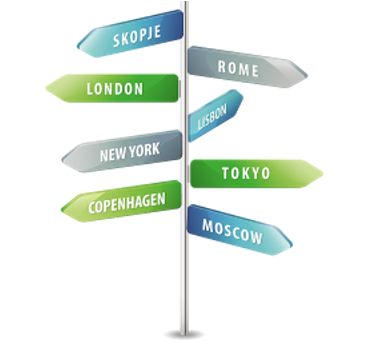


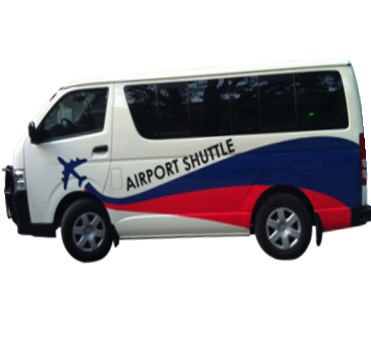




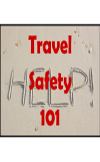


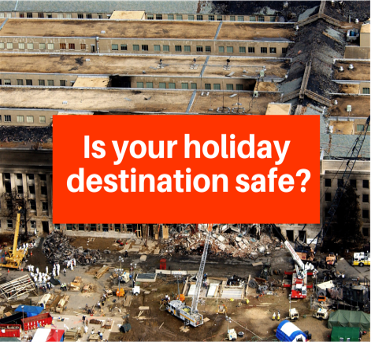








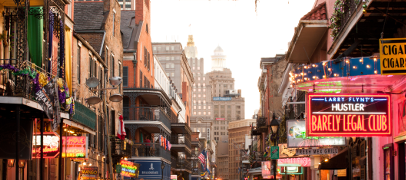

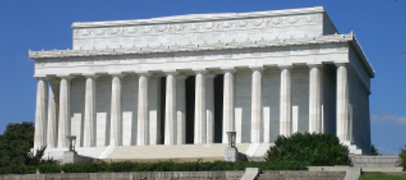
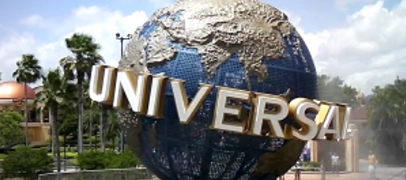
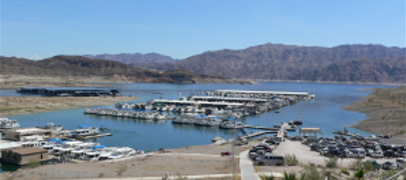

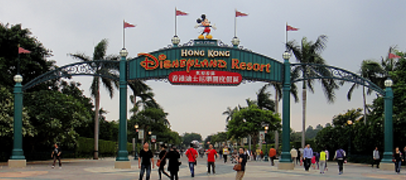









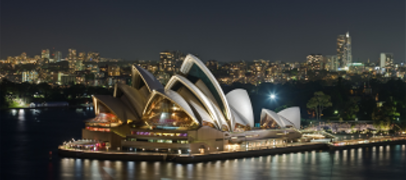
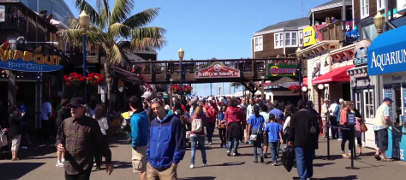




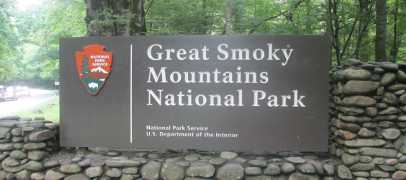



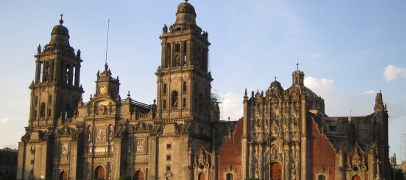

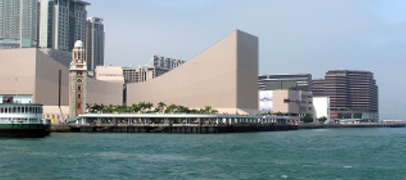




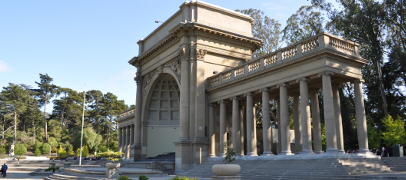


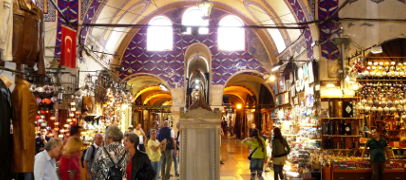
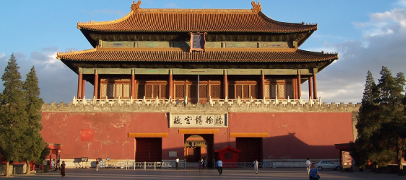


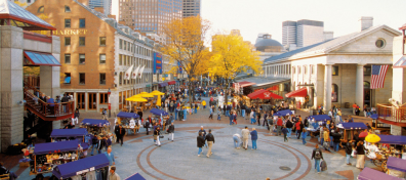

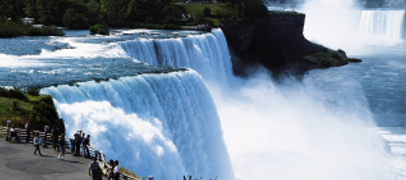
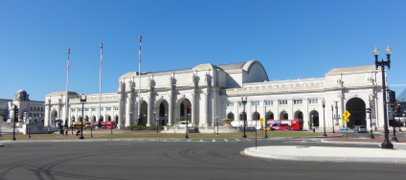
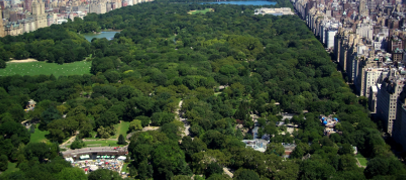

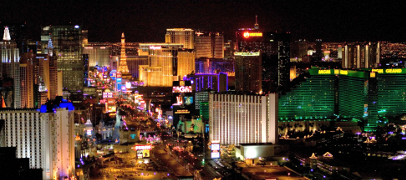
 Jacobine Ndi
Jacobine Ndi




